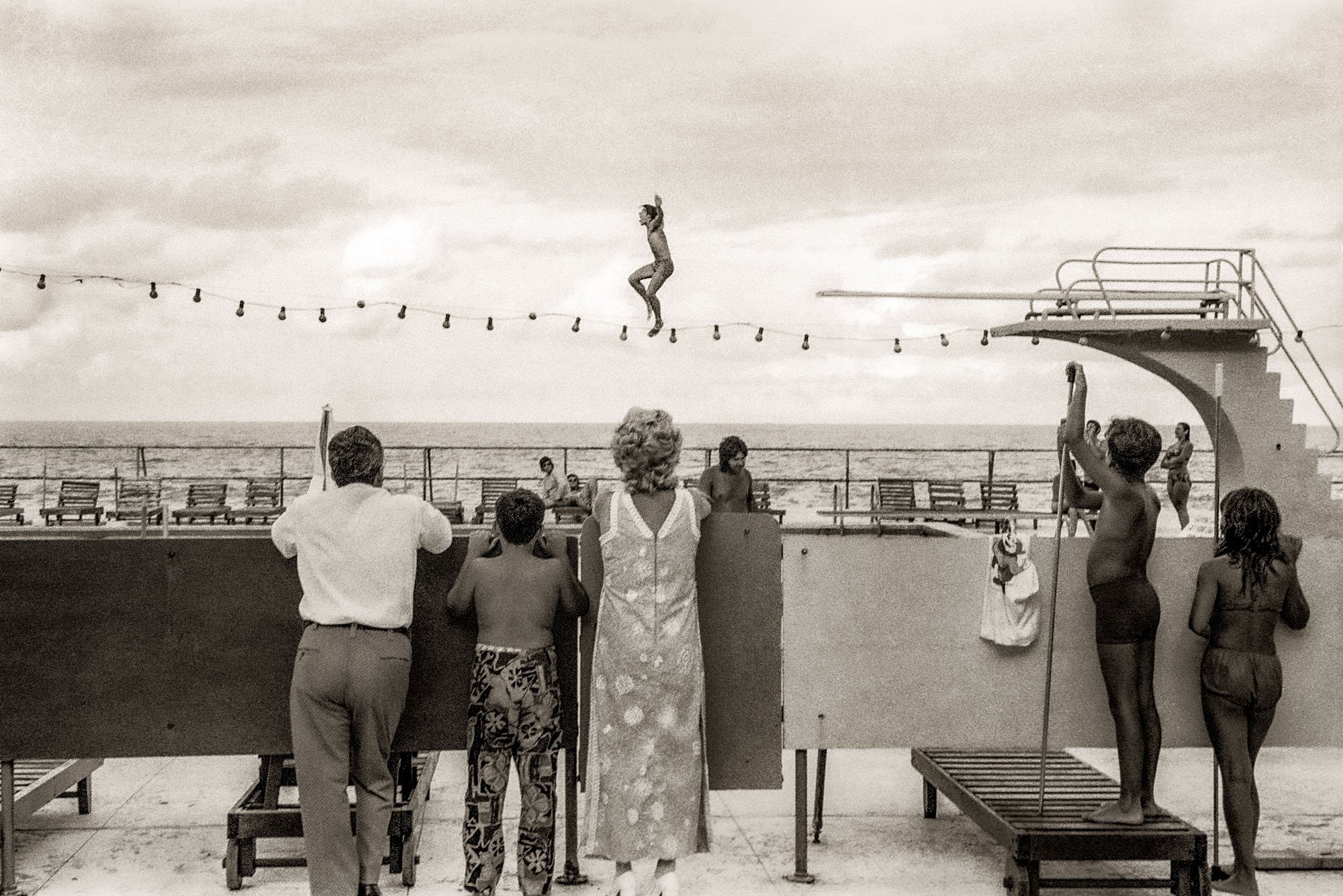
Walking around, you have to be ready for serendipity to happen. As a photographer the “decisive moment” is so much joy when you get it right. Daytona Beach.
(us006)
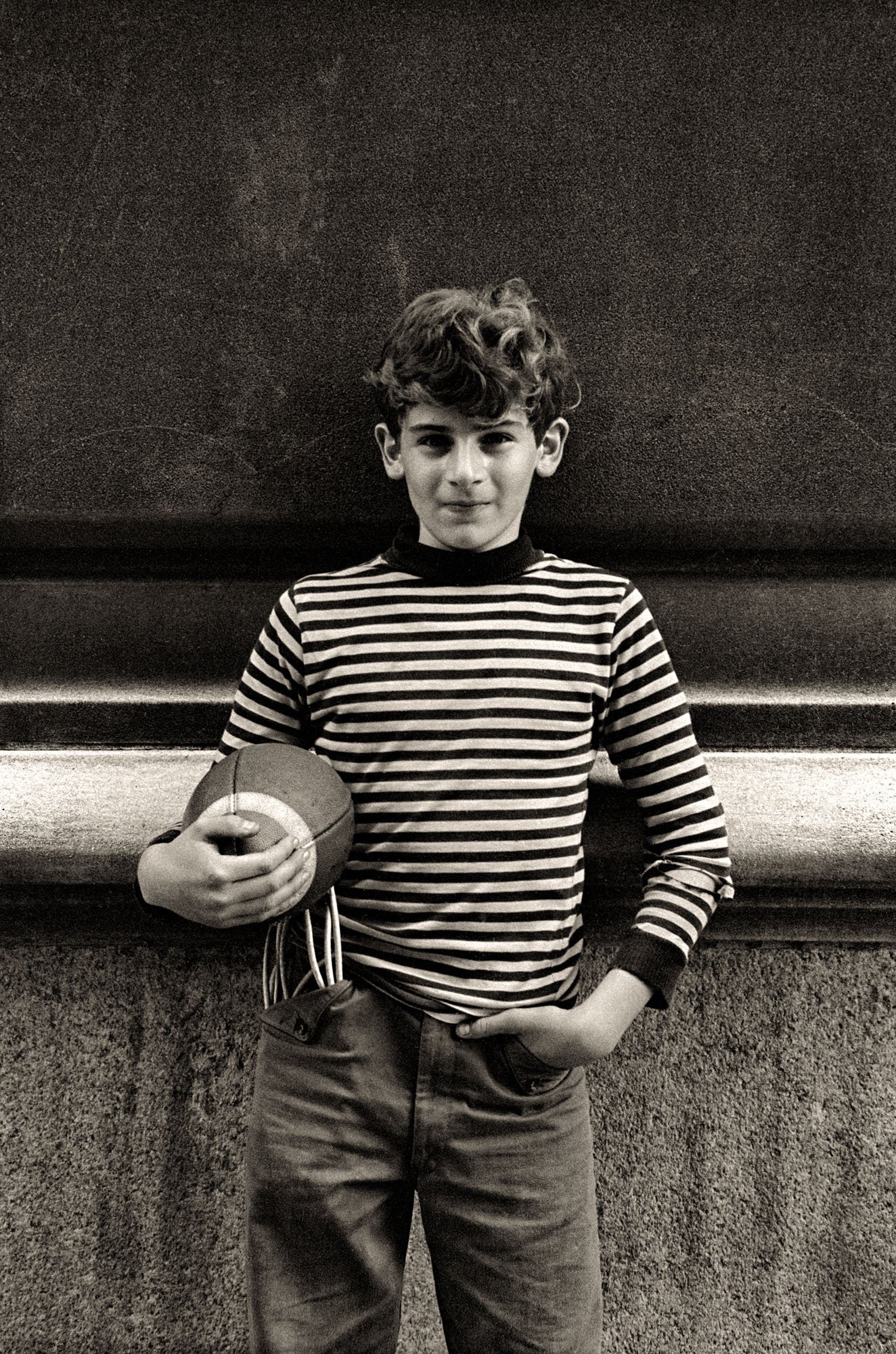
You wonder what people see when they look at a photograph that you have looked at a lot. Looking at this boy you could see how the stripes of his jersey echo the structure of the wall. You could see details like the tear in the left arm of his jersey, the bike lock wire in his pocket, or his boy scout pants. You could notice how his right hand kind of disembodies at the end of a football. New York City.
(us001)
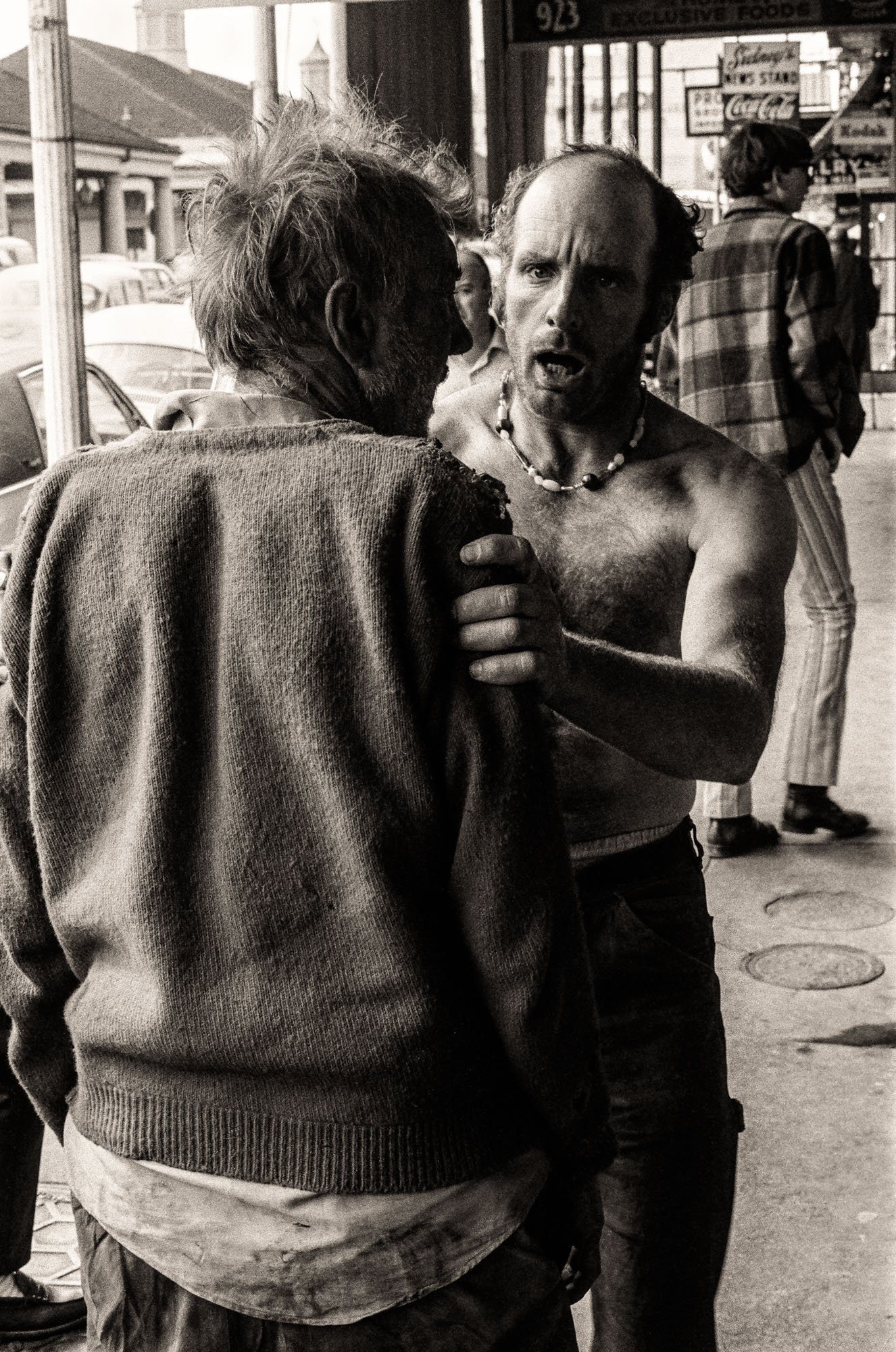
New Orleans
(us002)
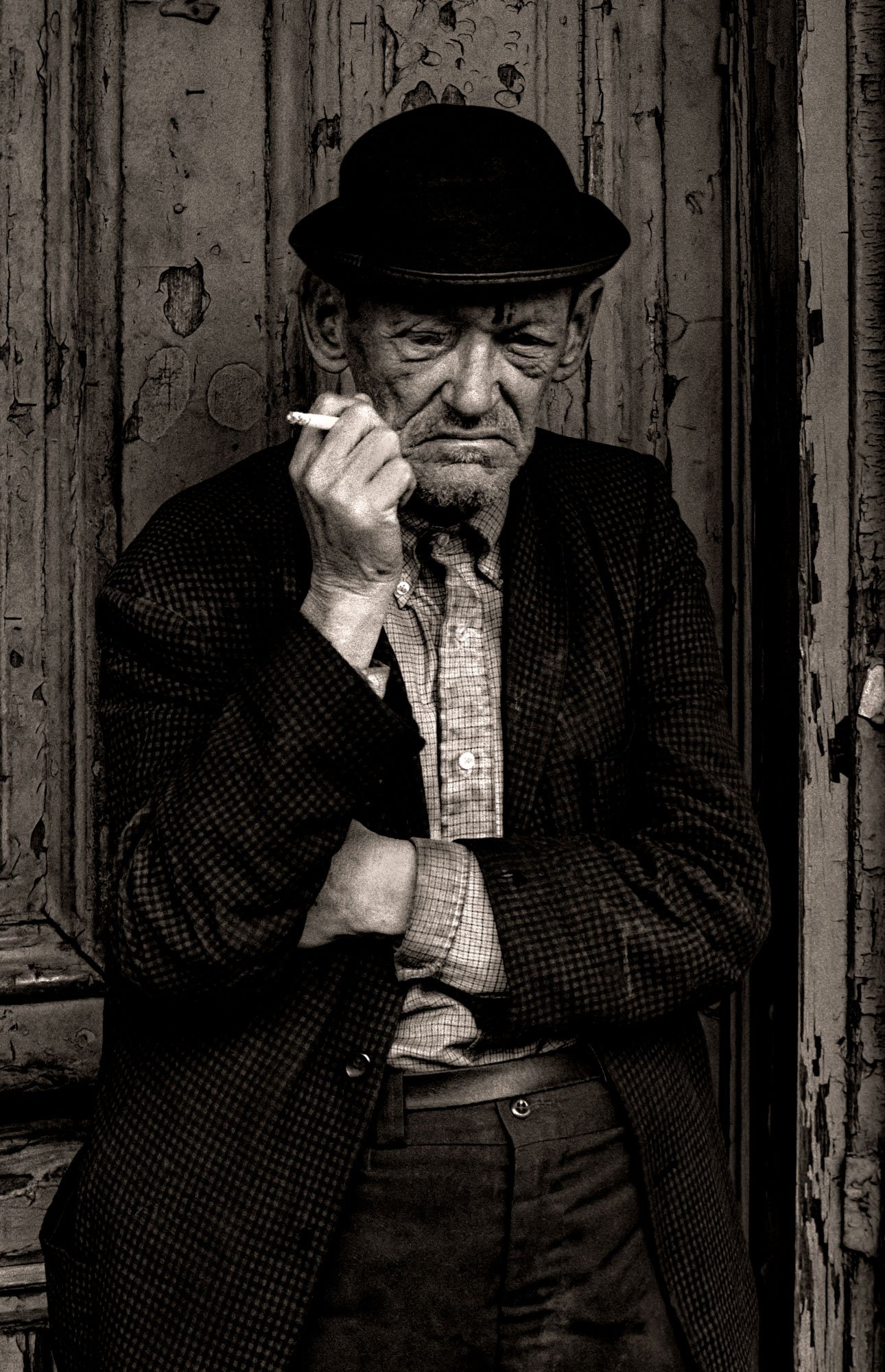
Usually, I wouldn’t take a photo like this of a New Orleans man. There were things so dark. The image tells you everything and nothing. New Orleans.
(us004)
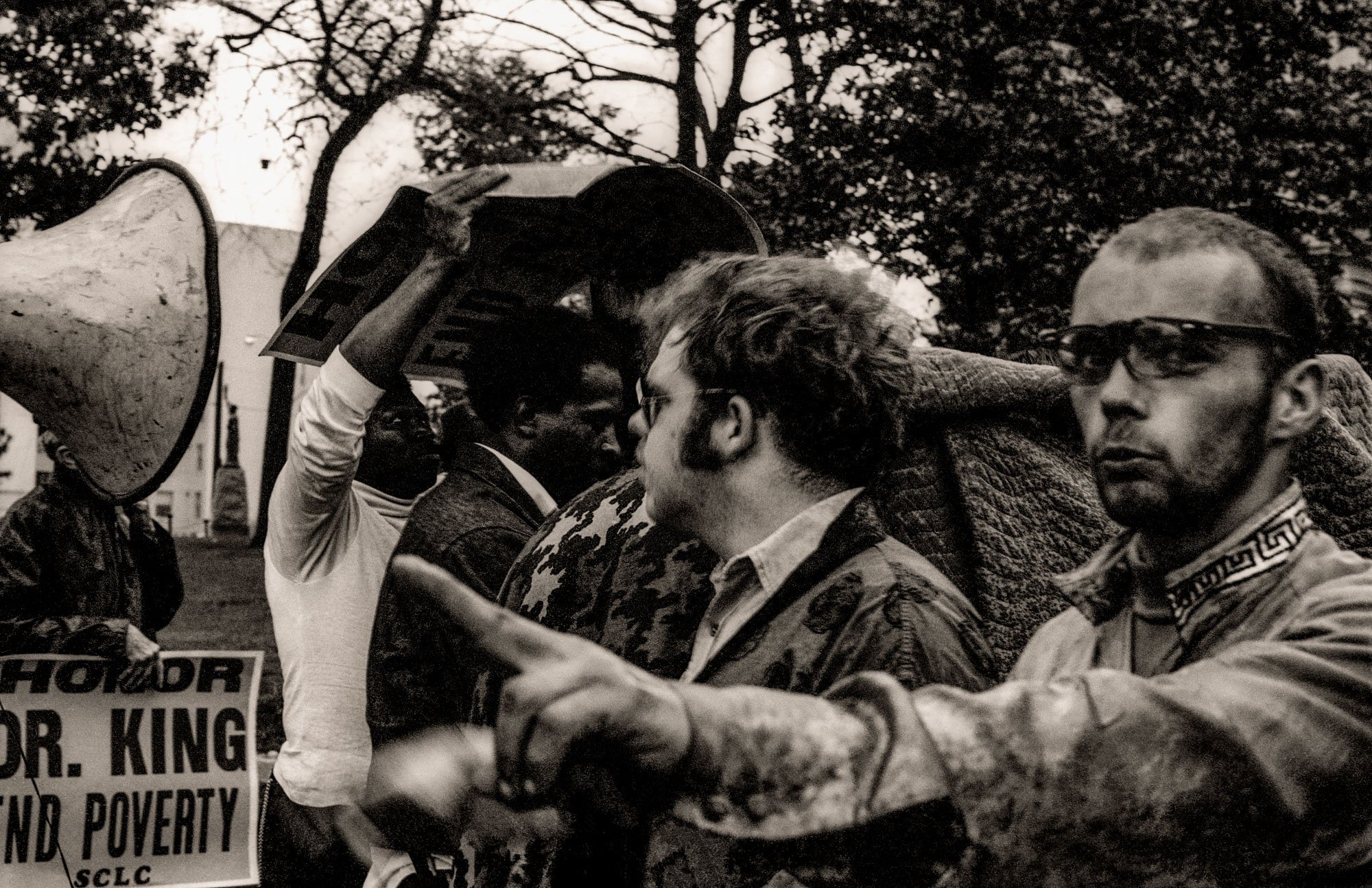
Atlanta
(us005)
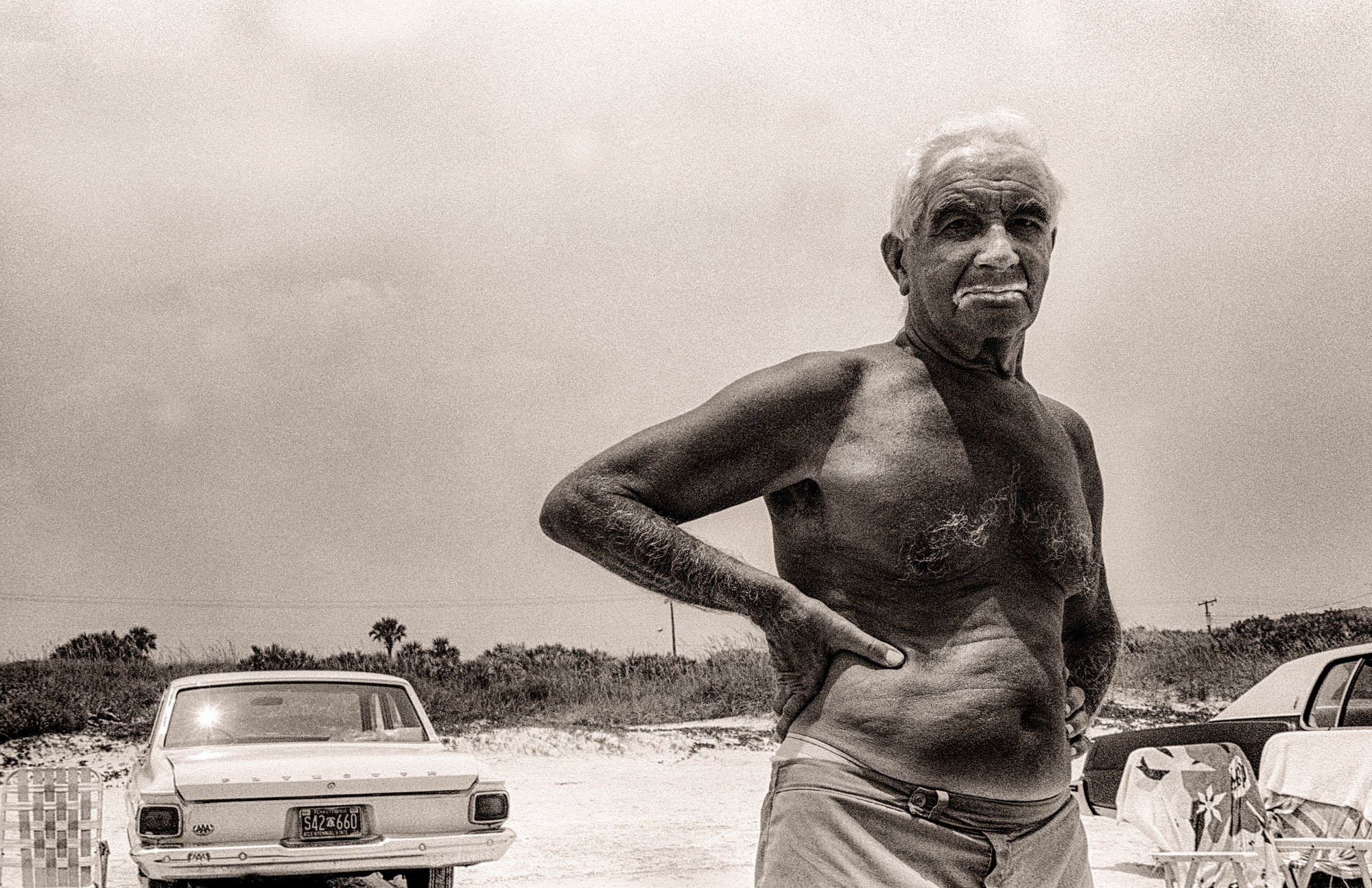
Daytona Beach was great fun to visit during the week in the early ‘70s. Lots of everyday folks just drove up to the beach, pulled a beach chair out of the car trunk. and baked in the sun for days and days.
(us007)
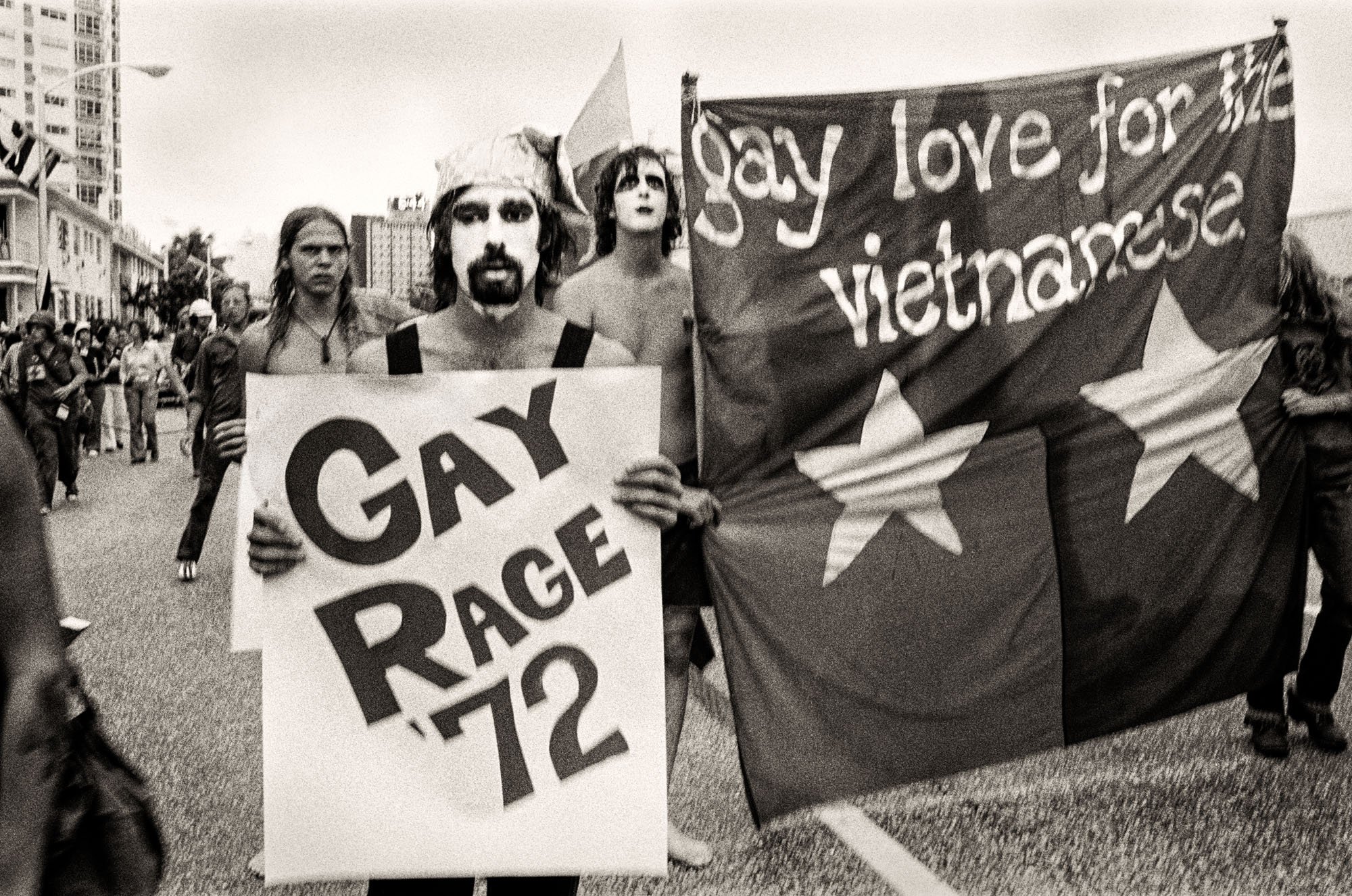
Miami
(us010)
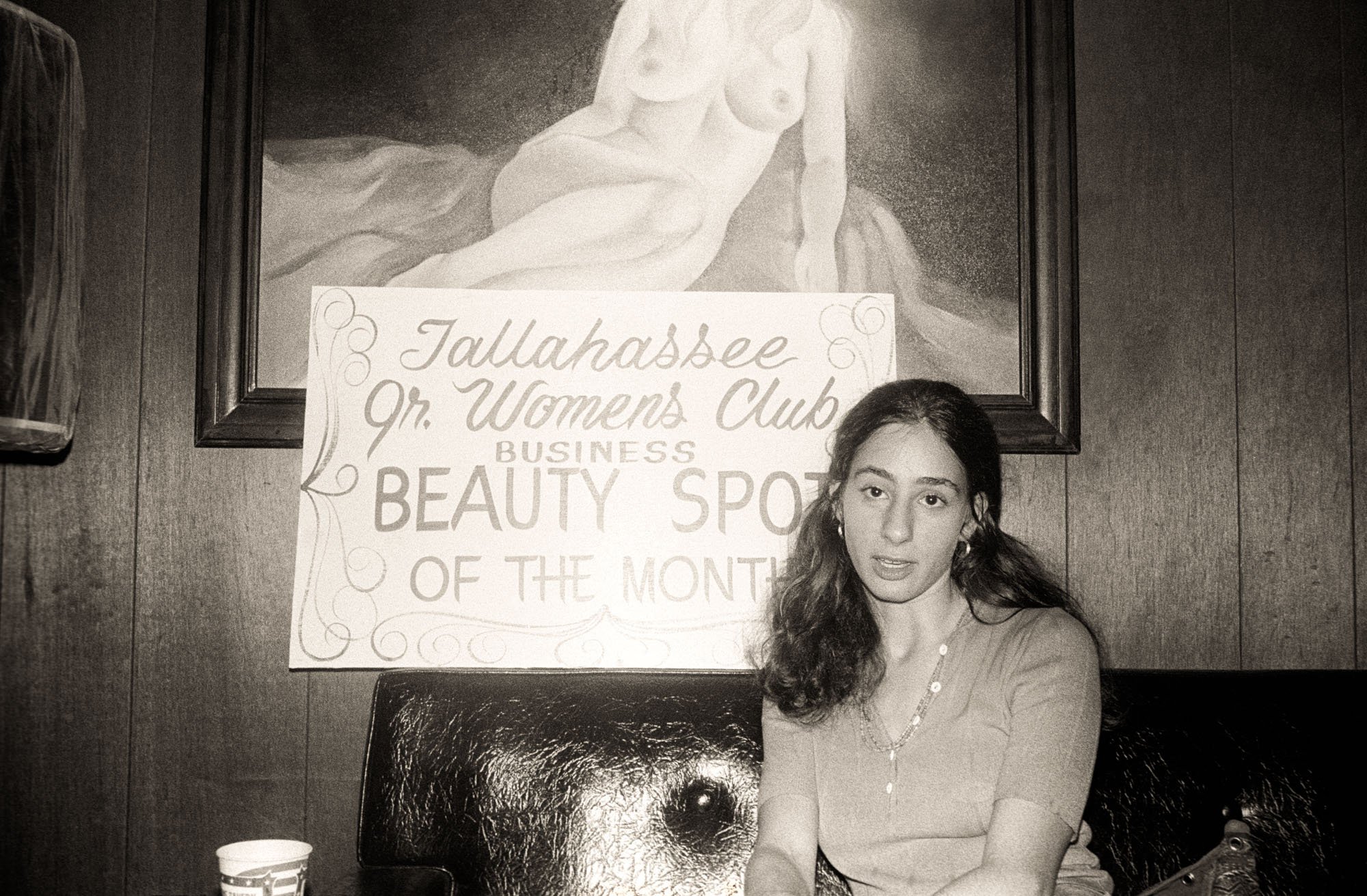
Tallahassee
(us012)
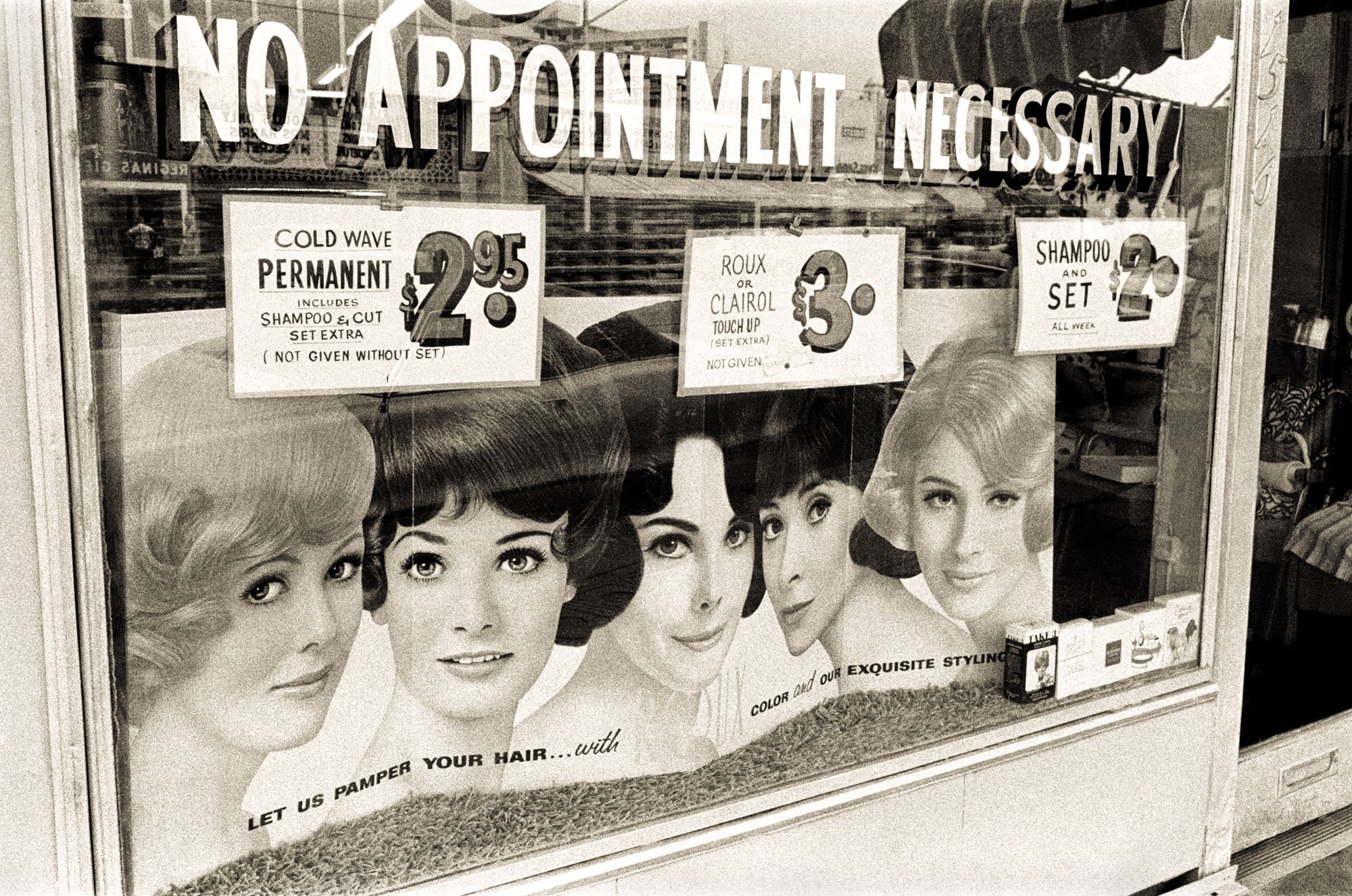
Store fronts, like this one in NYC, tell us a lot about any culture, about style, about prices, about what is of interest to certain segments of the people in that area.
(us013)
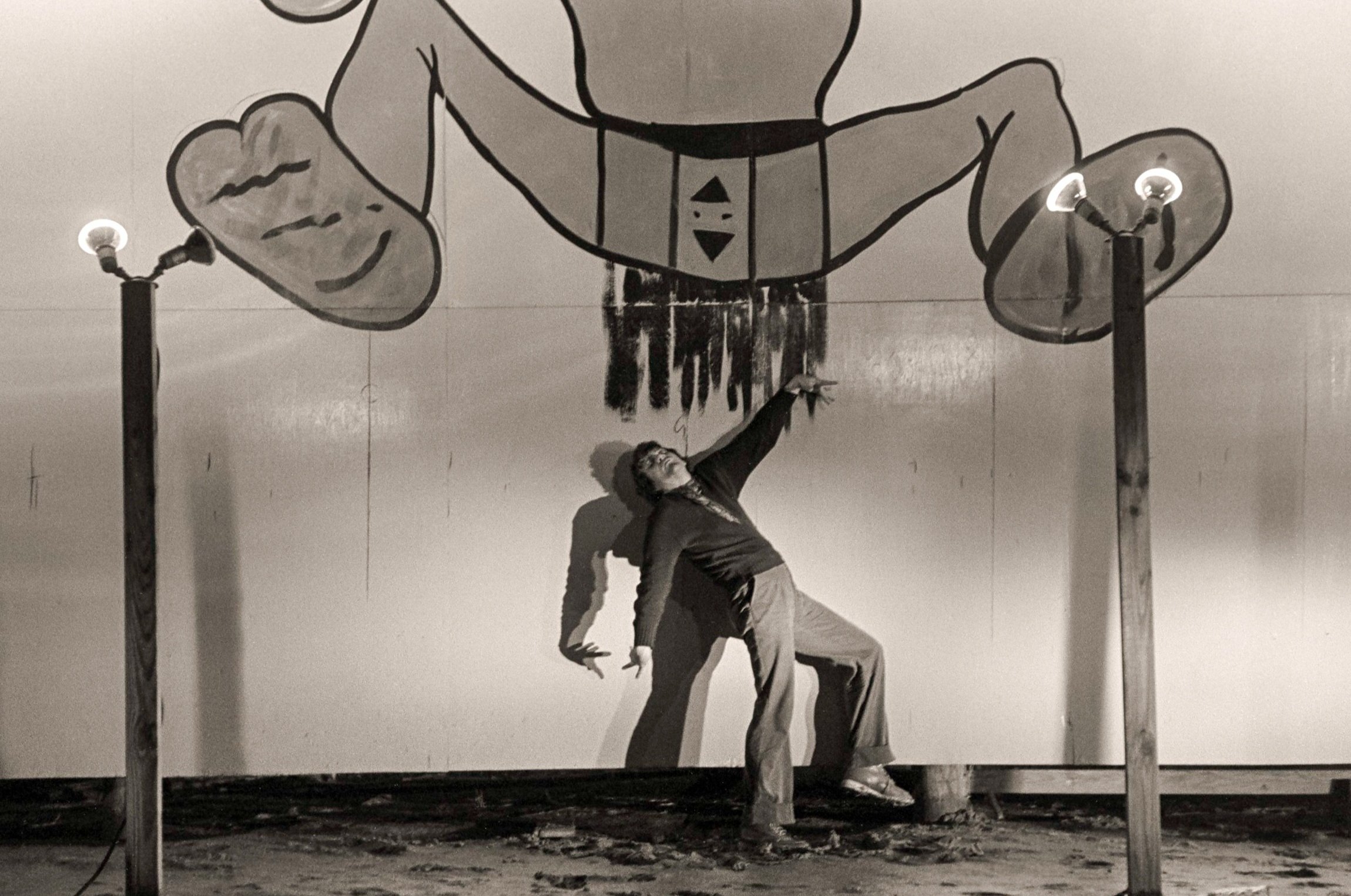
US Route 95
(us016)
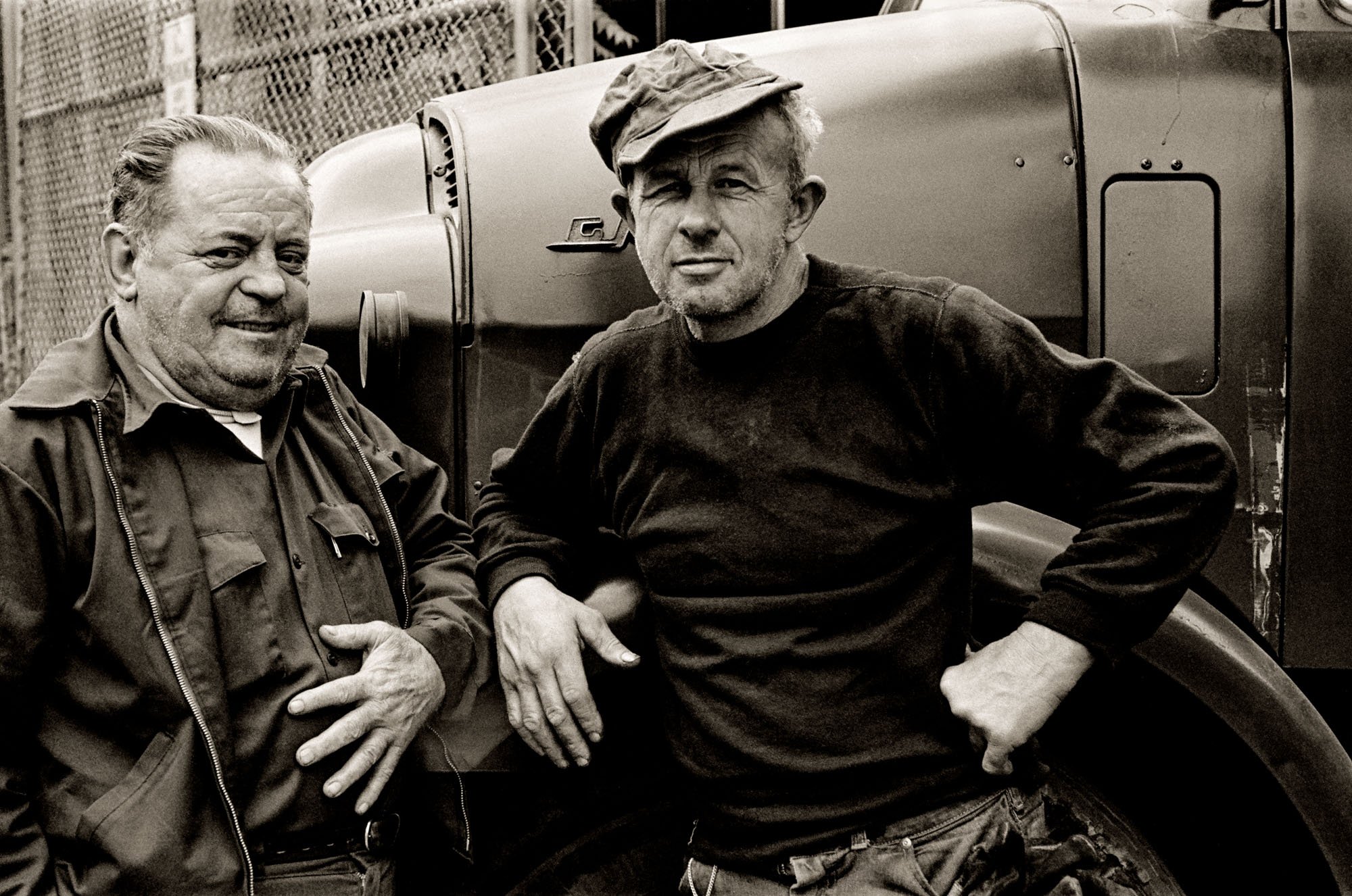
What attracts a photographer walking around and looking for photos of the street? To me, it’s usually the design—the shapes, the form of things. In mid-range images, it’s what the hands and arms are doing as much as the face. D. C.
(us021)
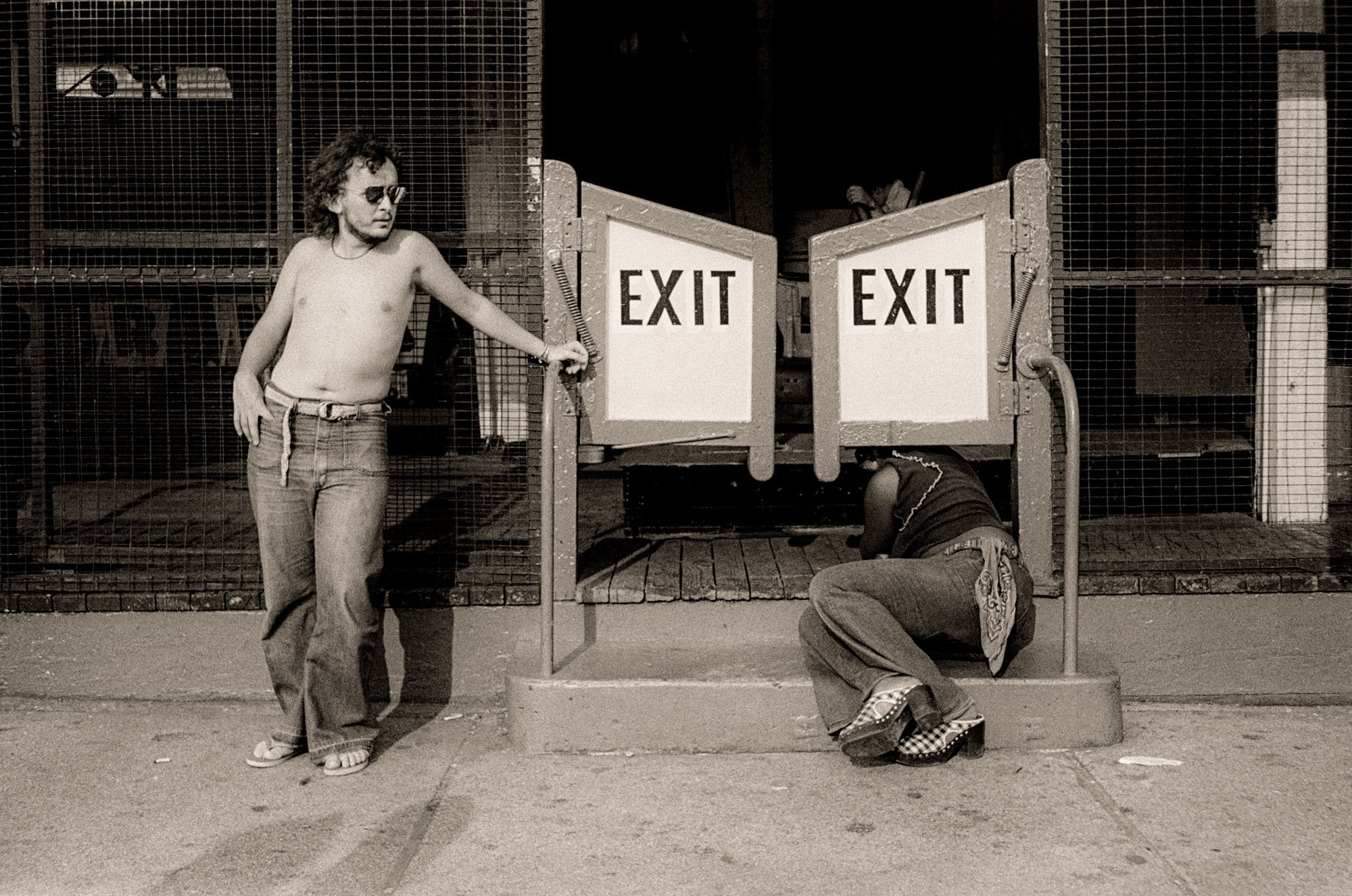
I love street shots where words become either a design element or an incongruous coincidence. Sometimes images have both. Florida.
(us022)
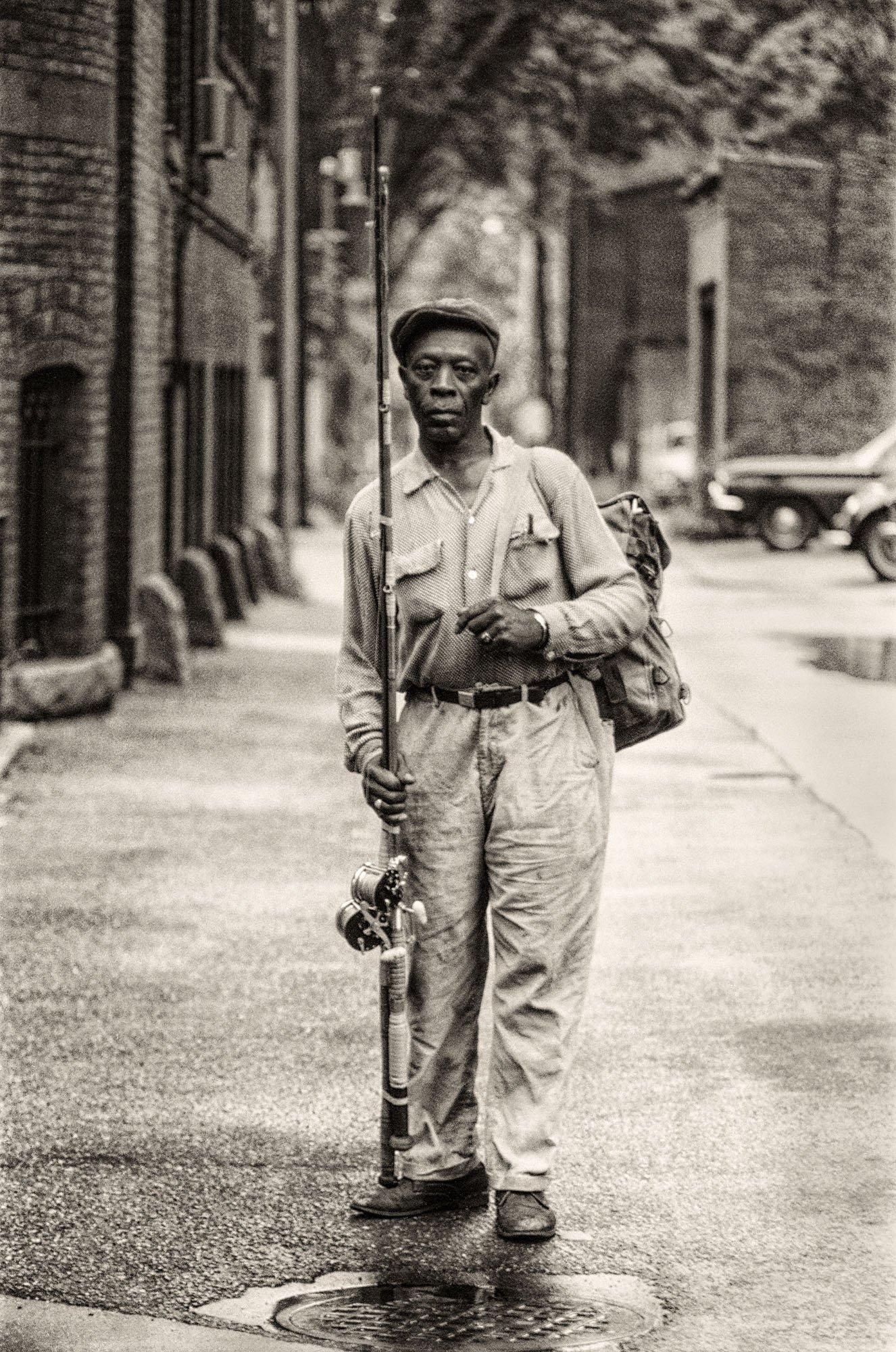
D.C.
(us025)
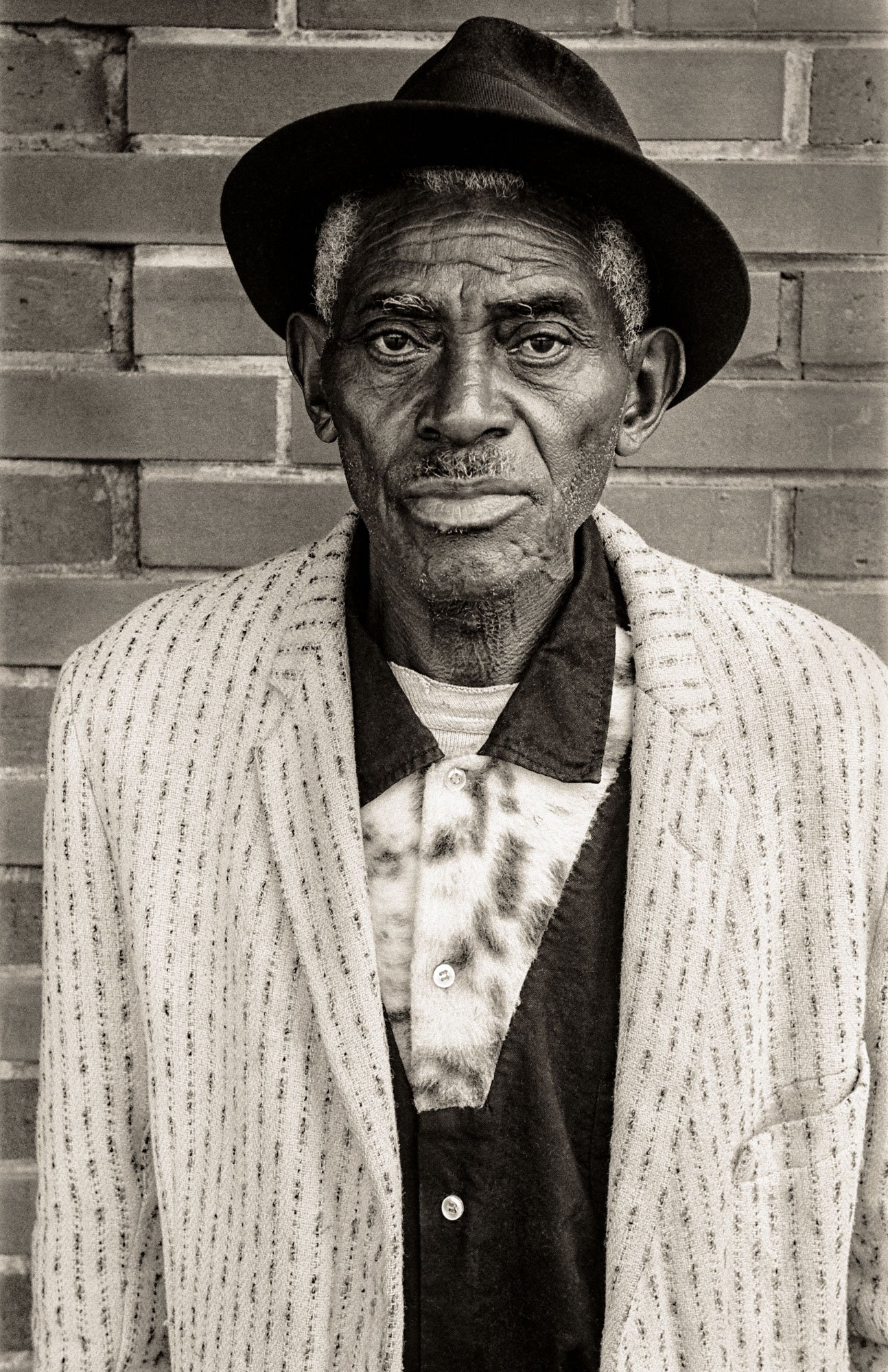
I have always enjoyed looking at portraits of people on the street staring into the camera. When the eyes are powerful, the person has a great face and posture; when the designs of the clothes or the background supports it--it’s hard to just walk by and forget it. Richmond.
(us026)
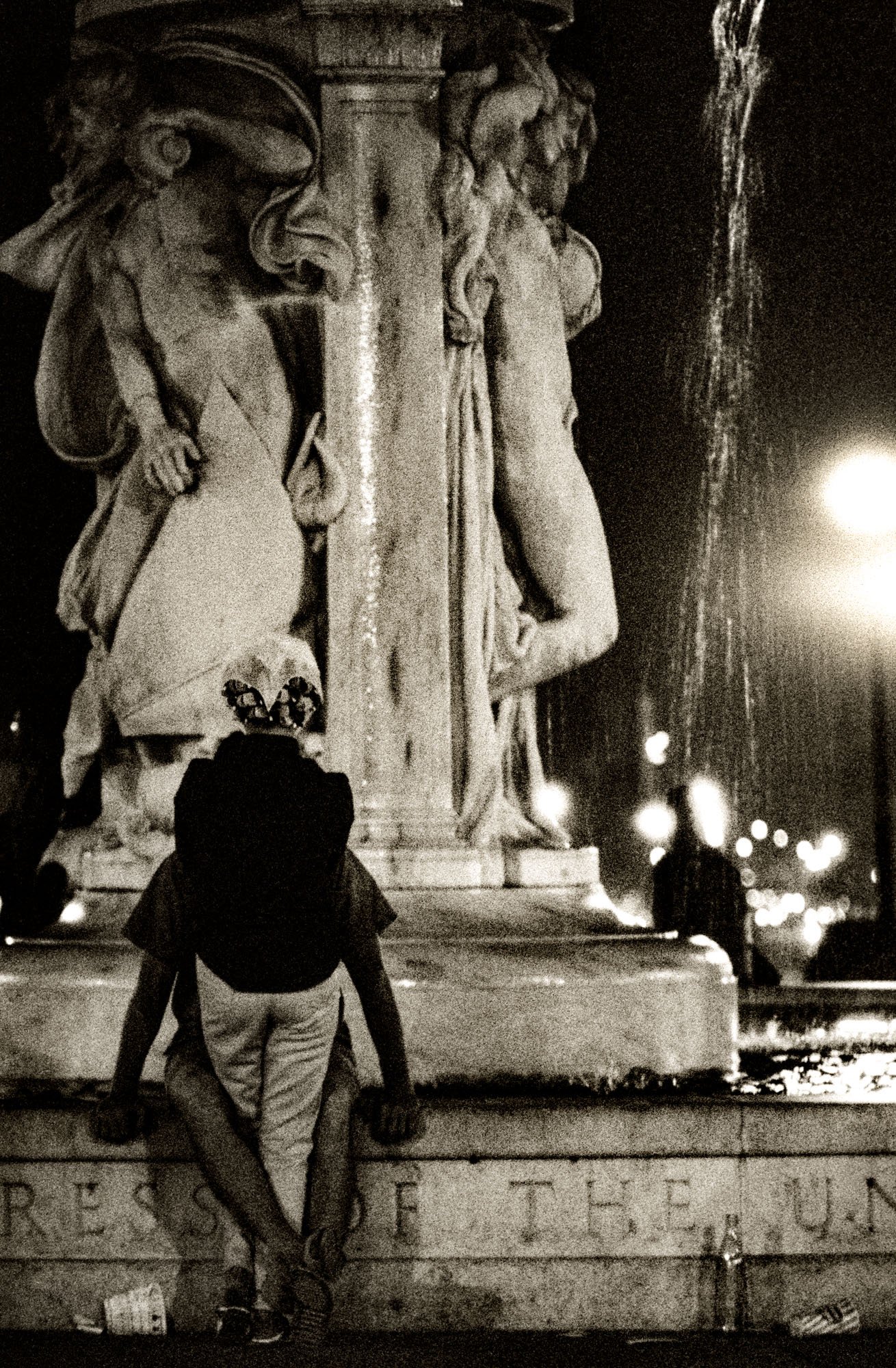
This is one of my earliest photos with an ancient 35mm camera and darkroom outfit I was teaching myself to use. This was shot on very grainy high-speed police film in Dupont Circle in DC.
(us036)
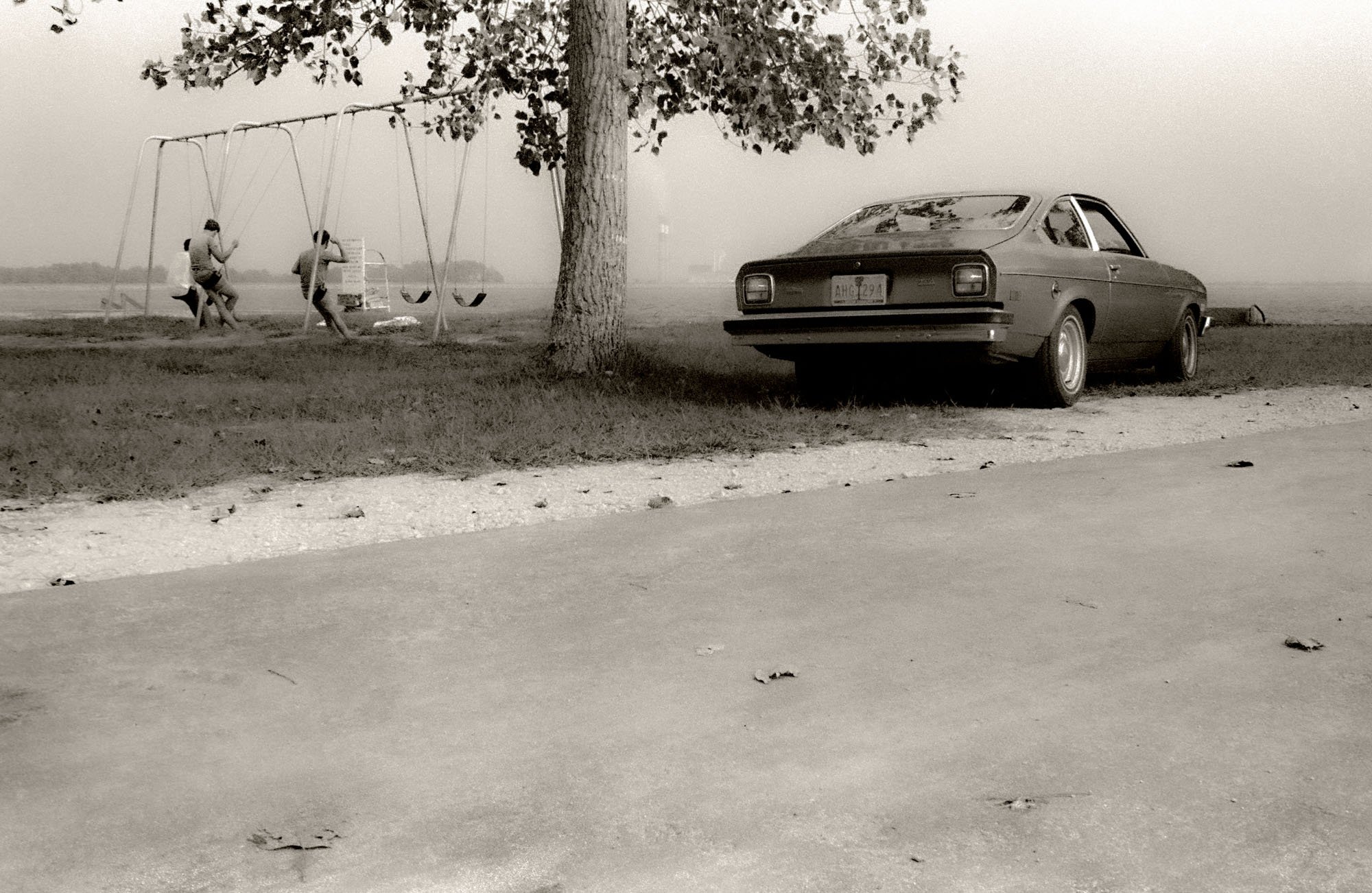
Frequently, when you stop along the road to take a photo that others might not think is there, you don’t regret it. It’s the shape or the color or something. Maybe it’s a narrative of everyday life like this place in Charleston.
(us072)
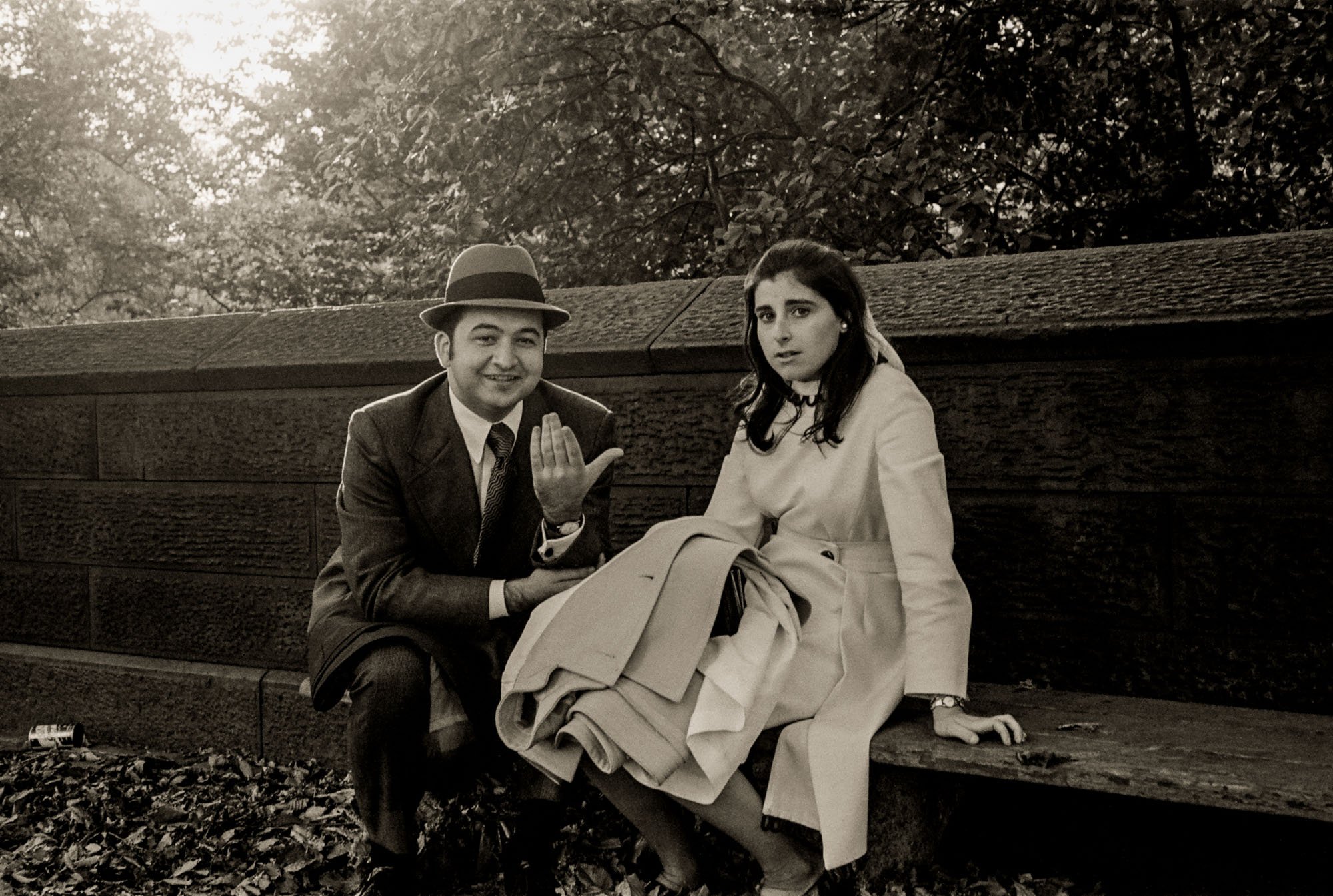
New York City
(us082)
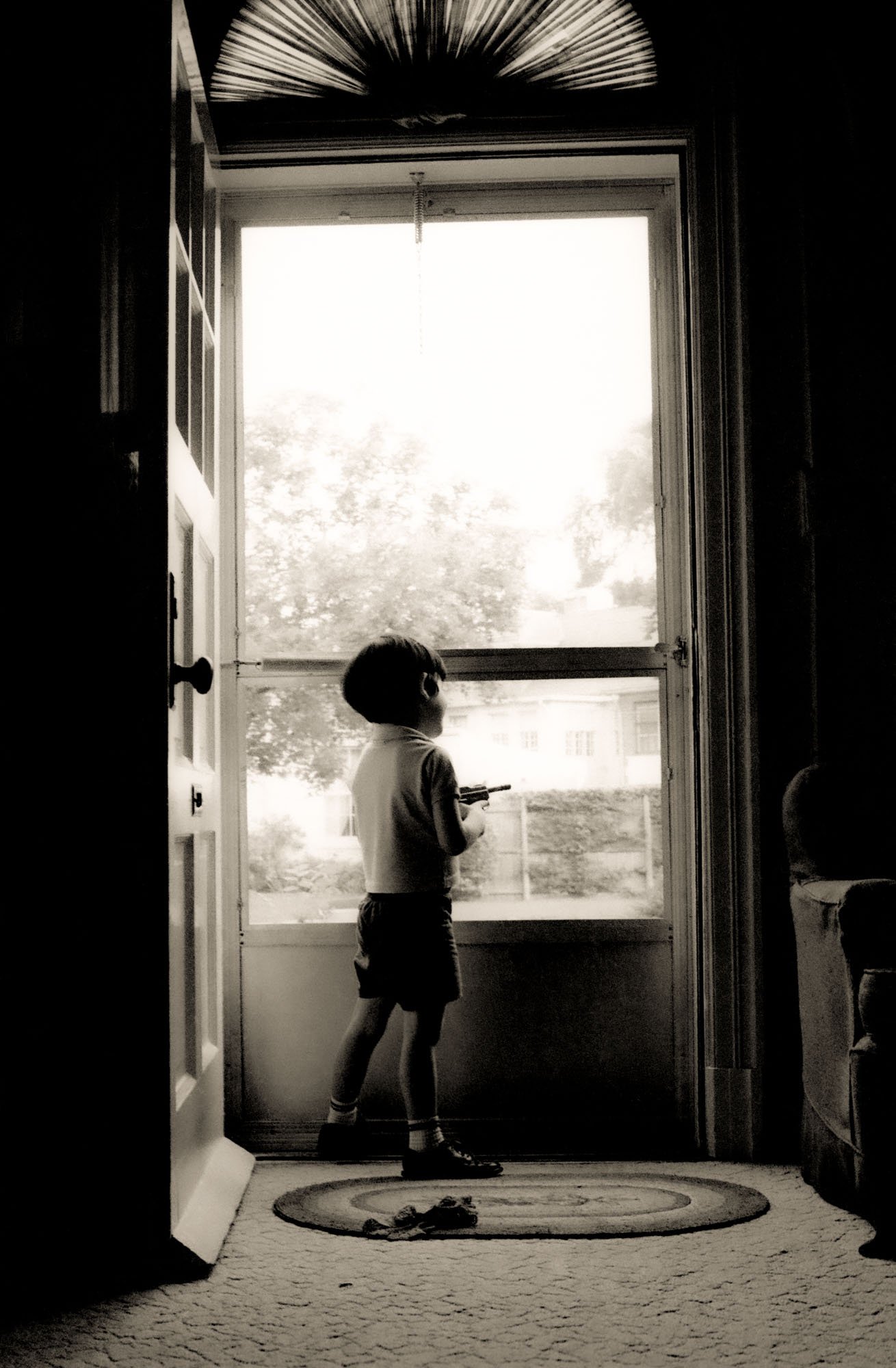
D.C.
(us087)
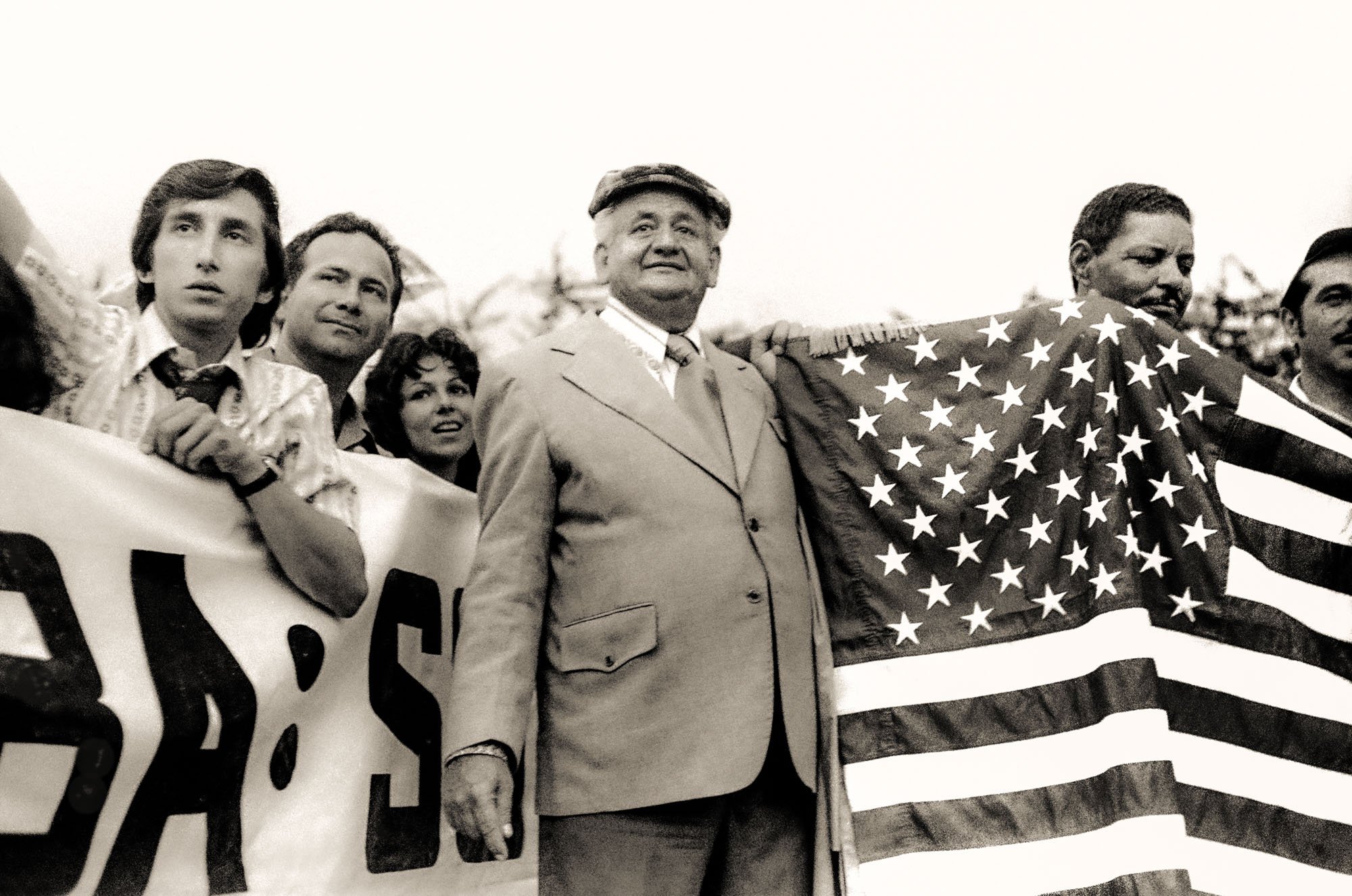
Many Cubans refugees in Miami in the early ‘70s were vocal critics of Castro. Marches and demonstrations were lively, graphic, and loud.
(us096)
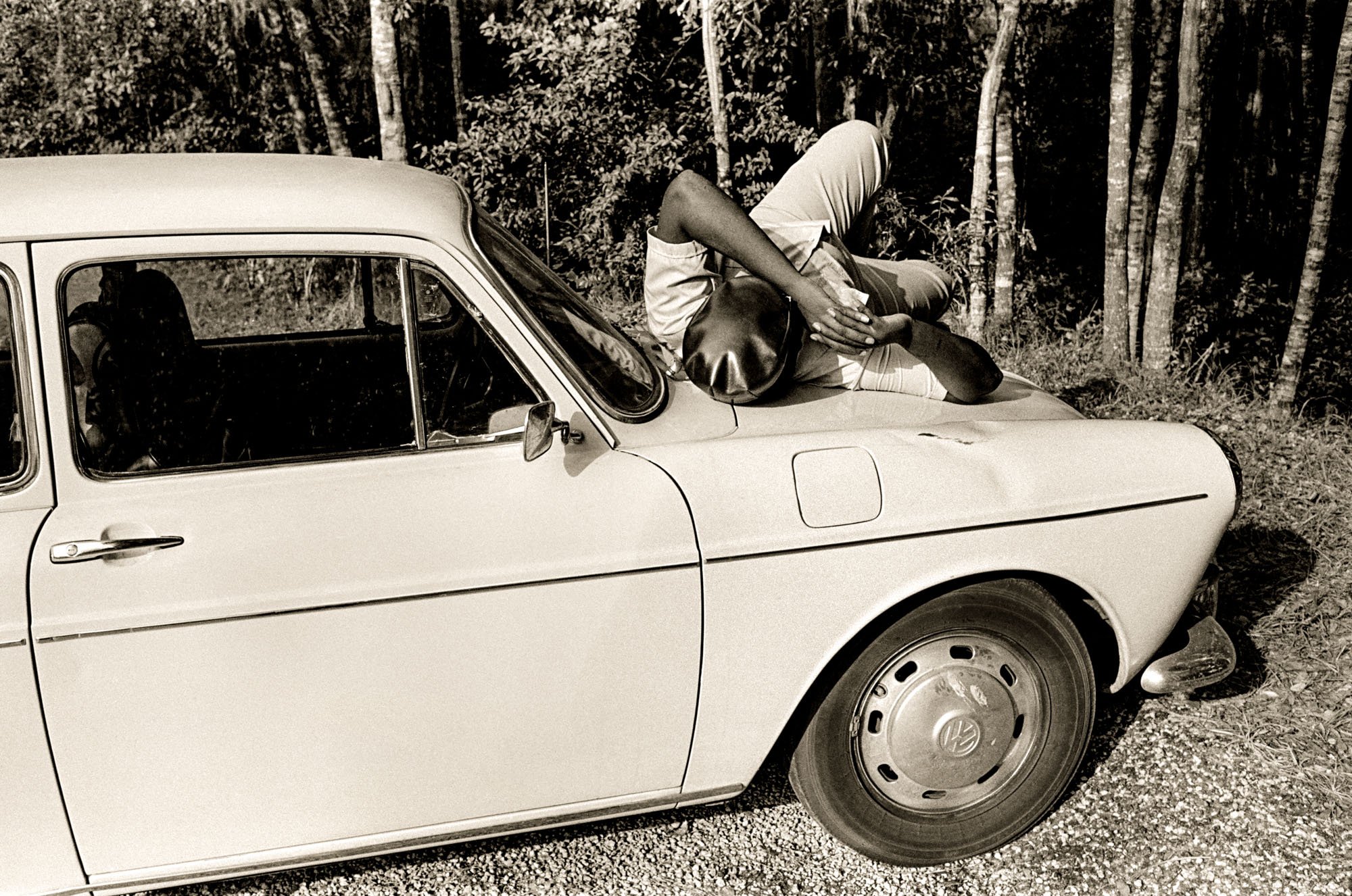
Scenes along a road where someone is doing something that could be explained in several ways attract our attention. We think about that person and sometimes we jump to conclusions. Less often, we also look at the visual components of the scene. Florida.
(us099)
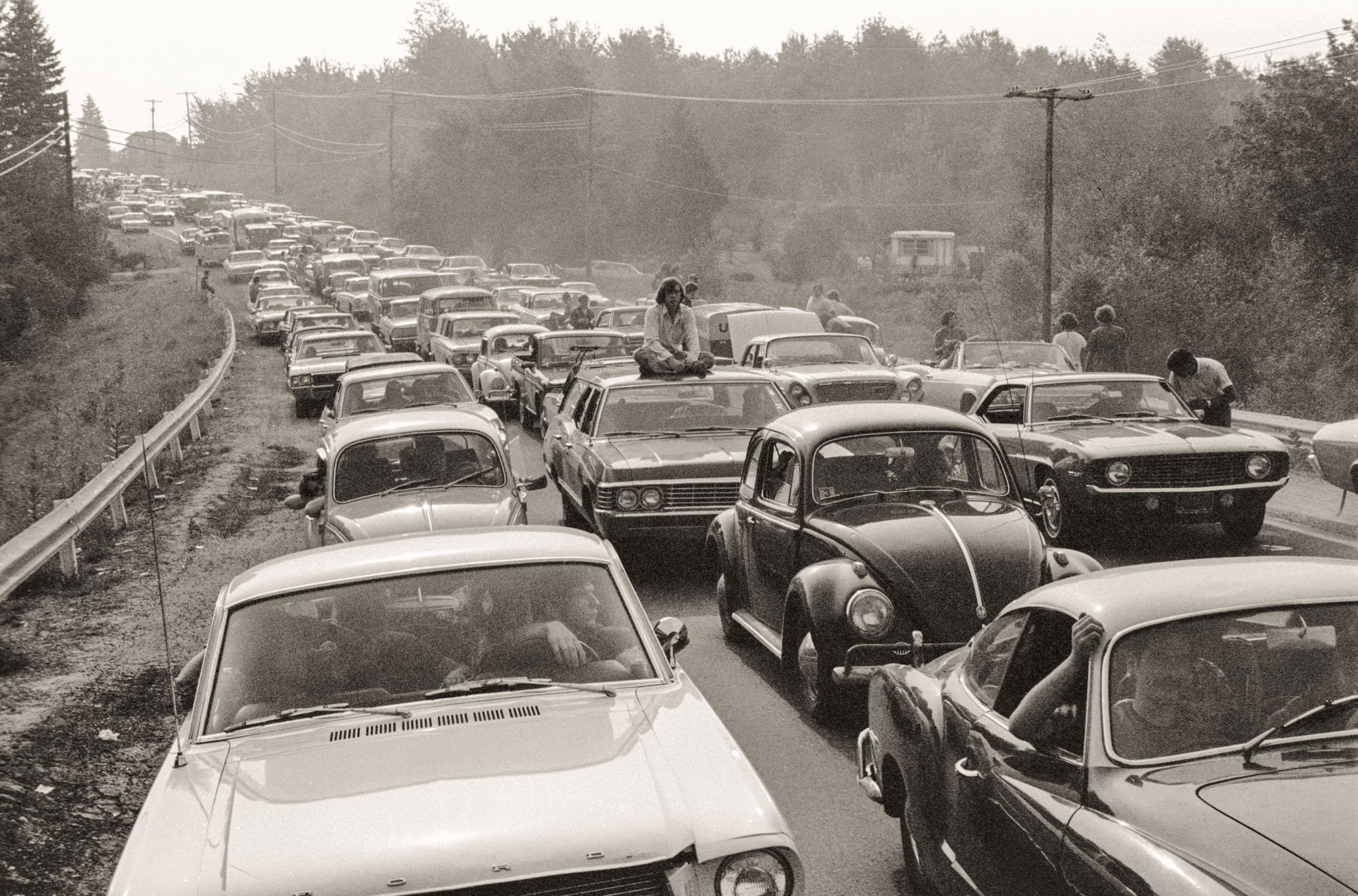
New York State
(us020)
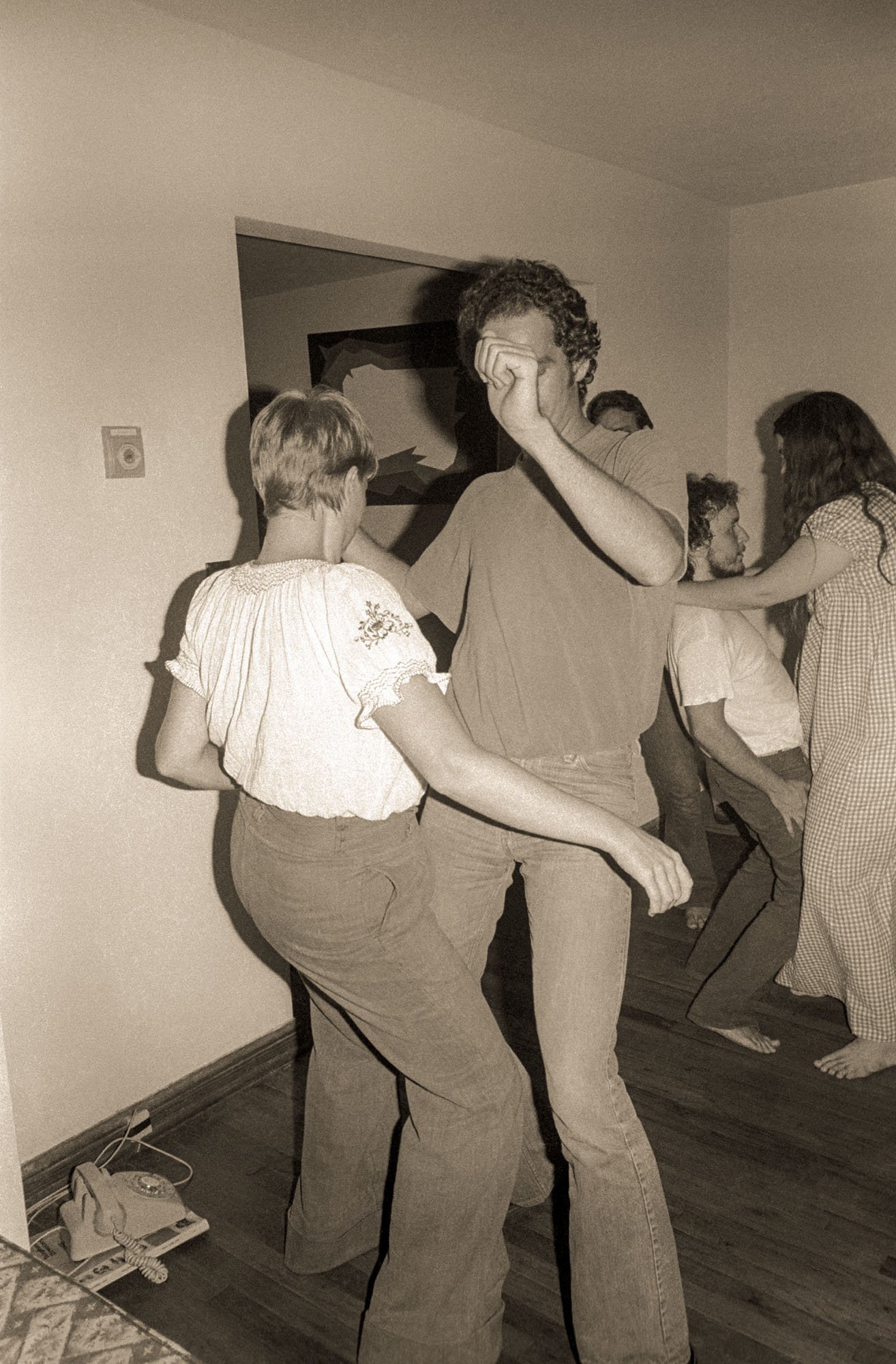
Tallahassee
(us028)
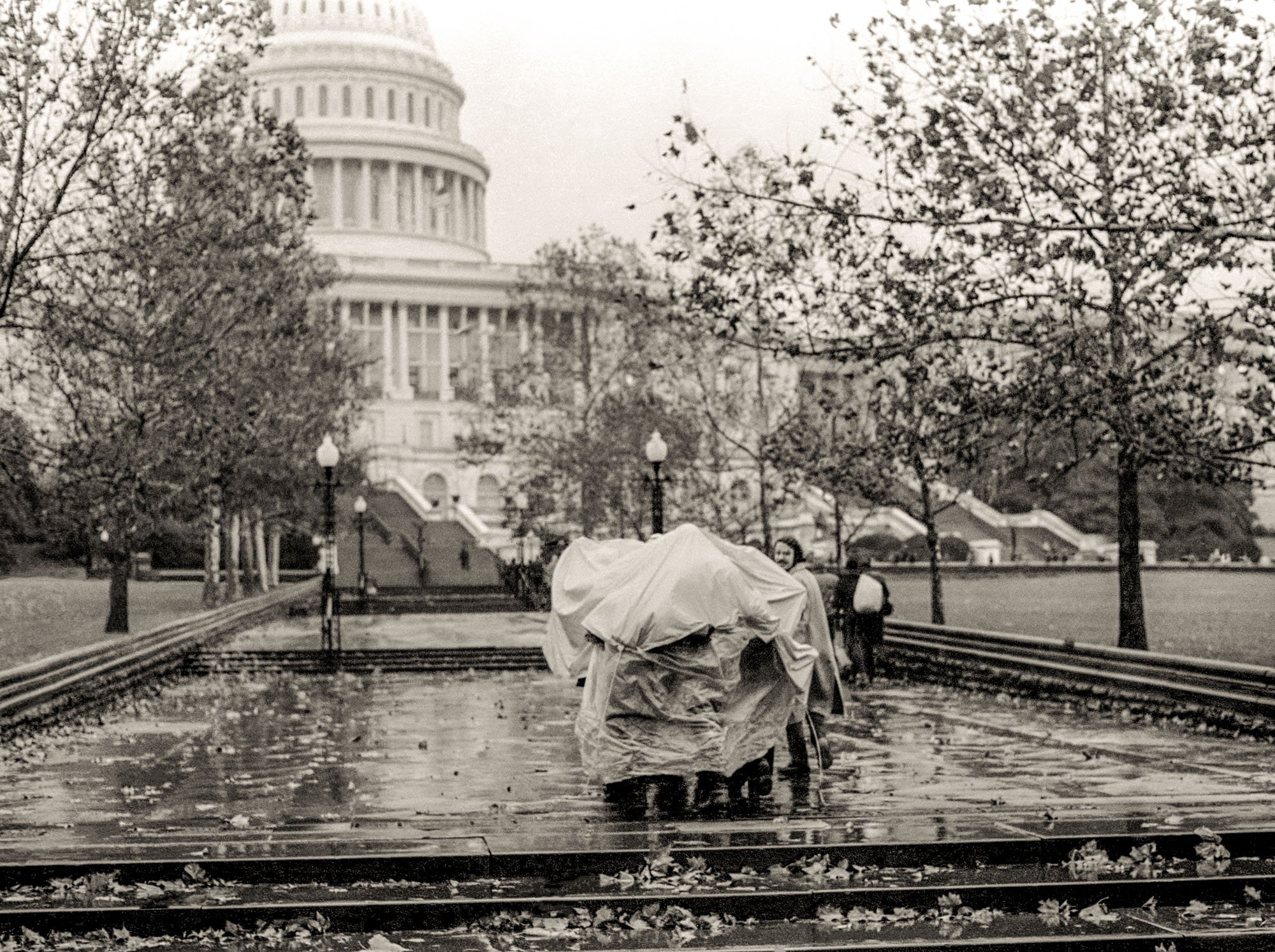
D.C.
(us100)
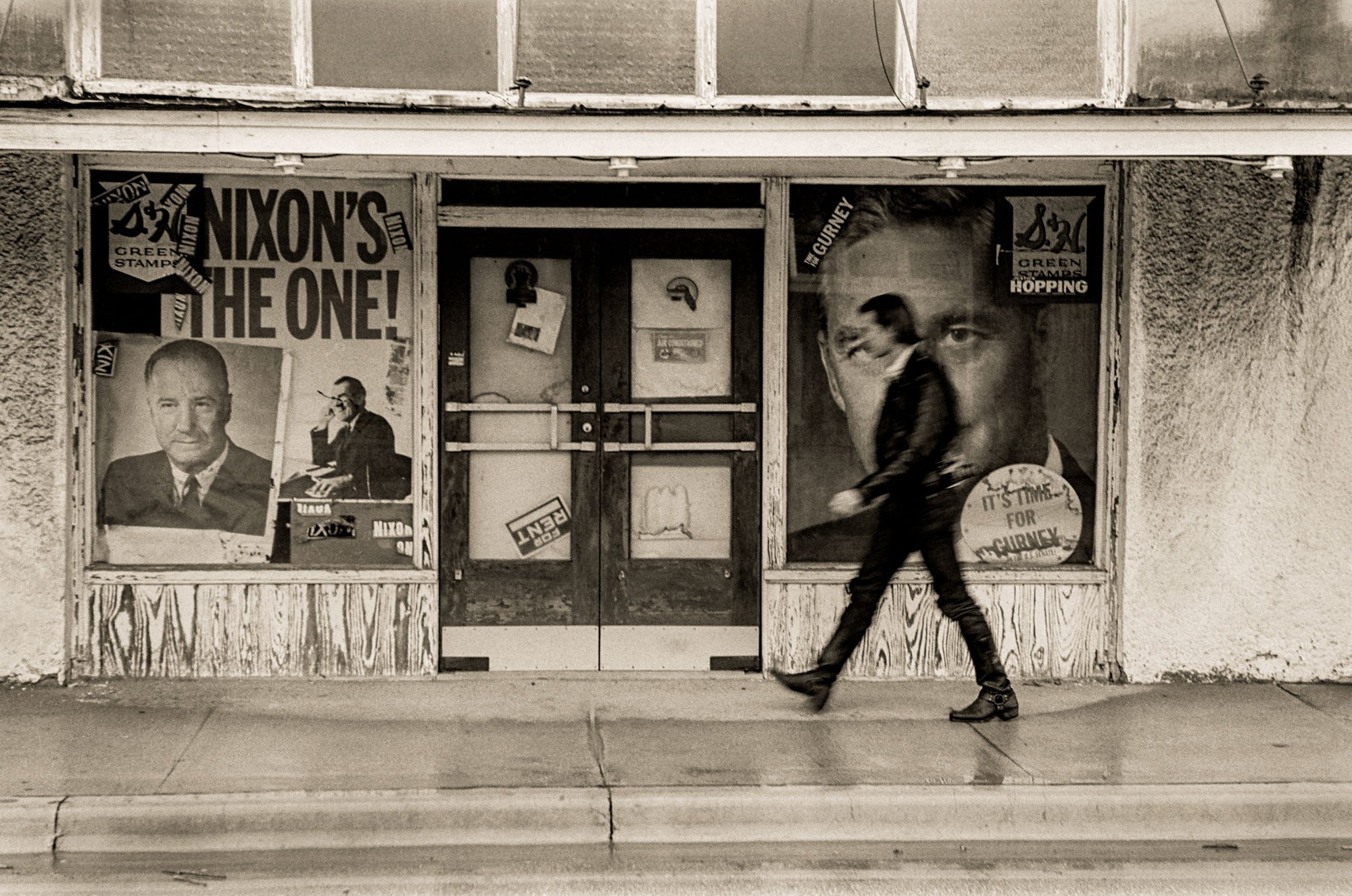
Sometimes when I came upon a storefront with strong visual messaging, I’d like to plant myself in the right spot and wait for someone to walk along who seems oblivious to the message. Havana, Florida
(us103)
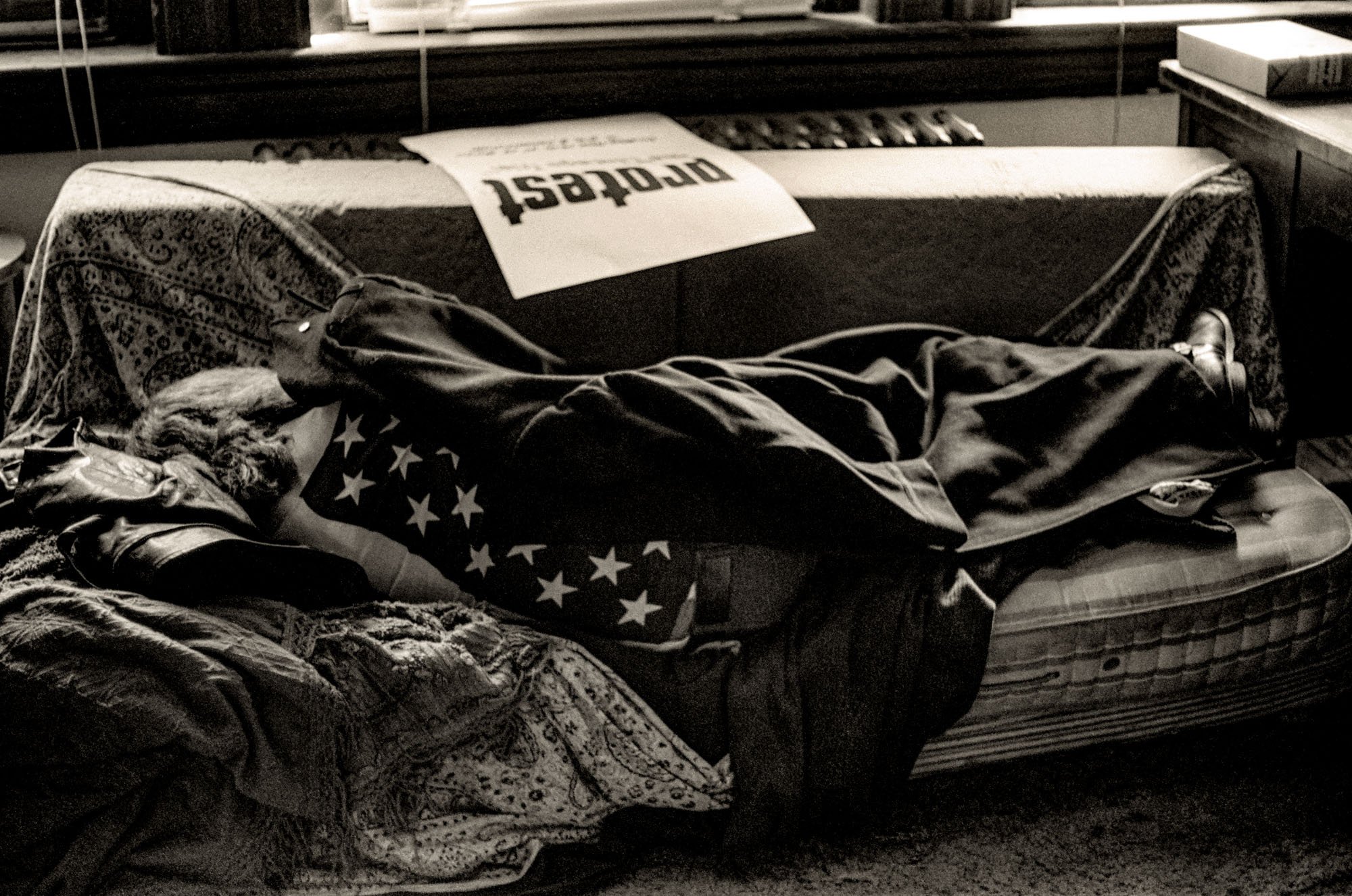
Young people poured into cities for anti-Vietnam marches in the early 1970s. They slept wherever they wound up. D.C.
(us107)
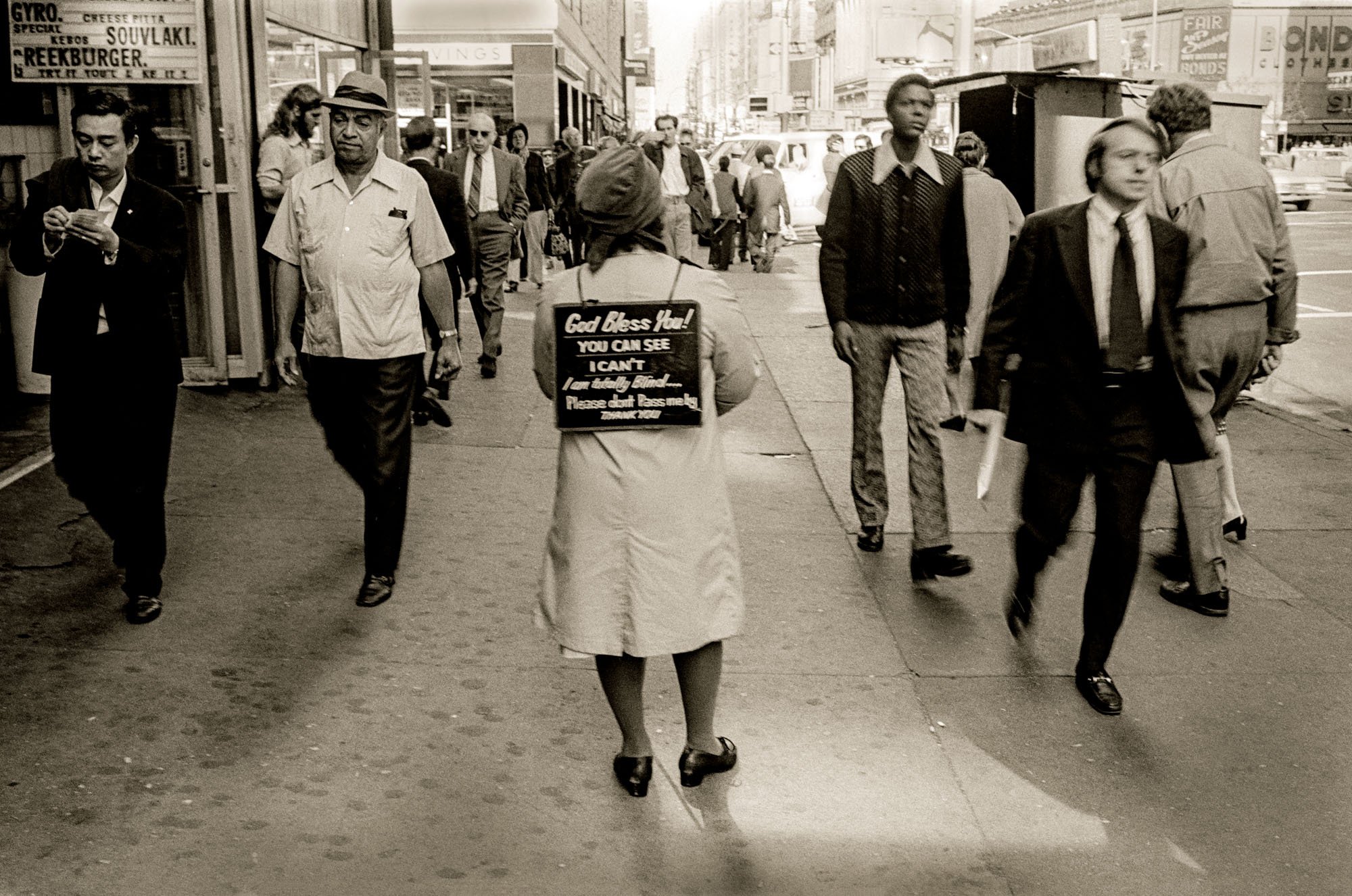
New York City
(us110)
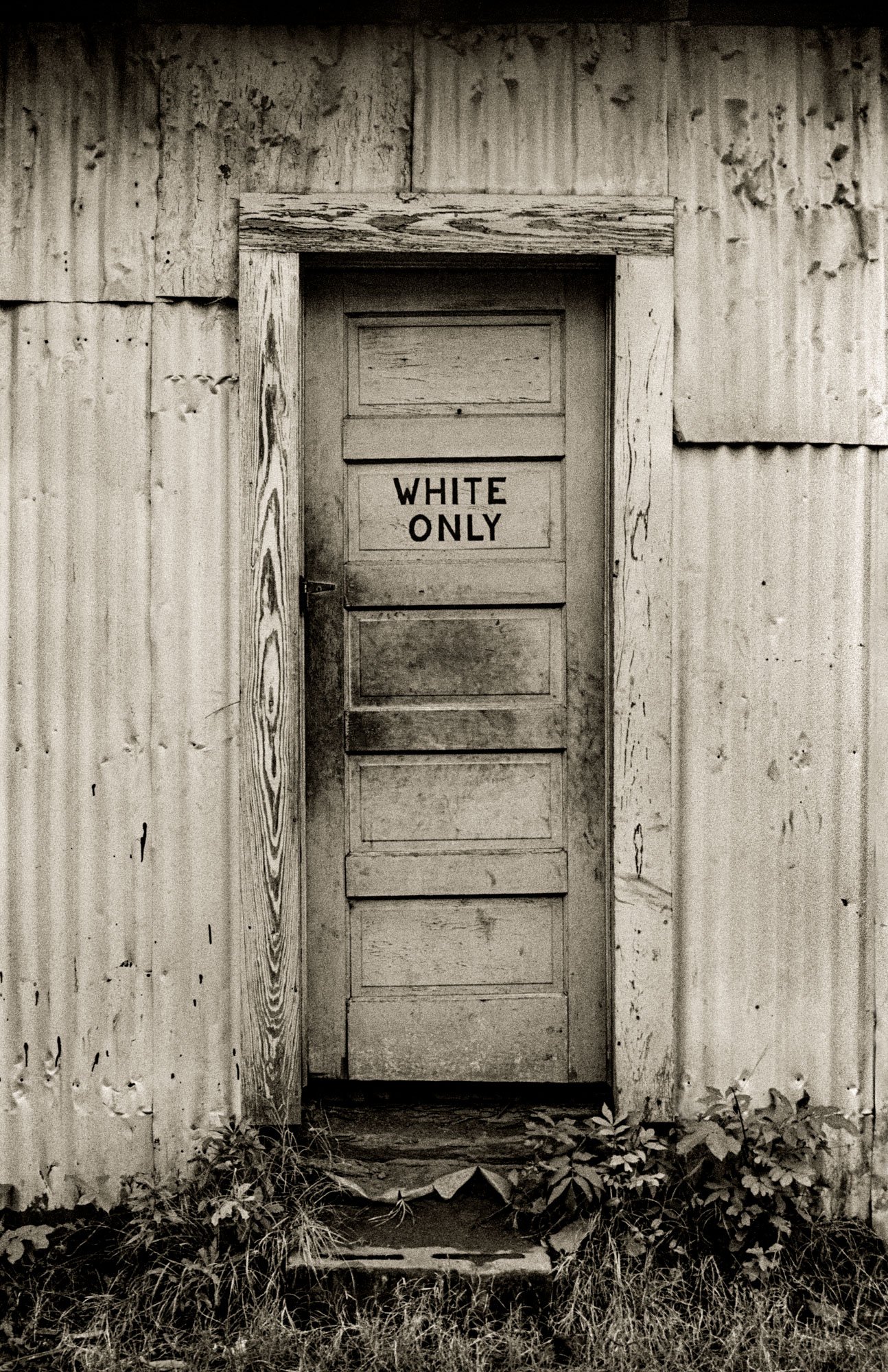
Tallahassee
(us112)
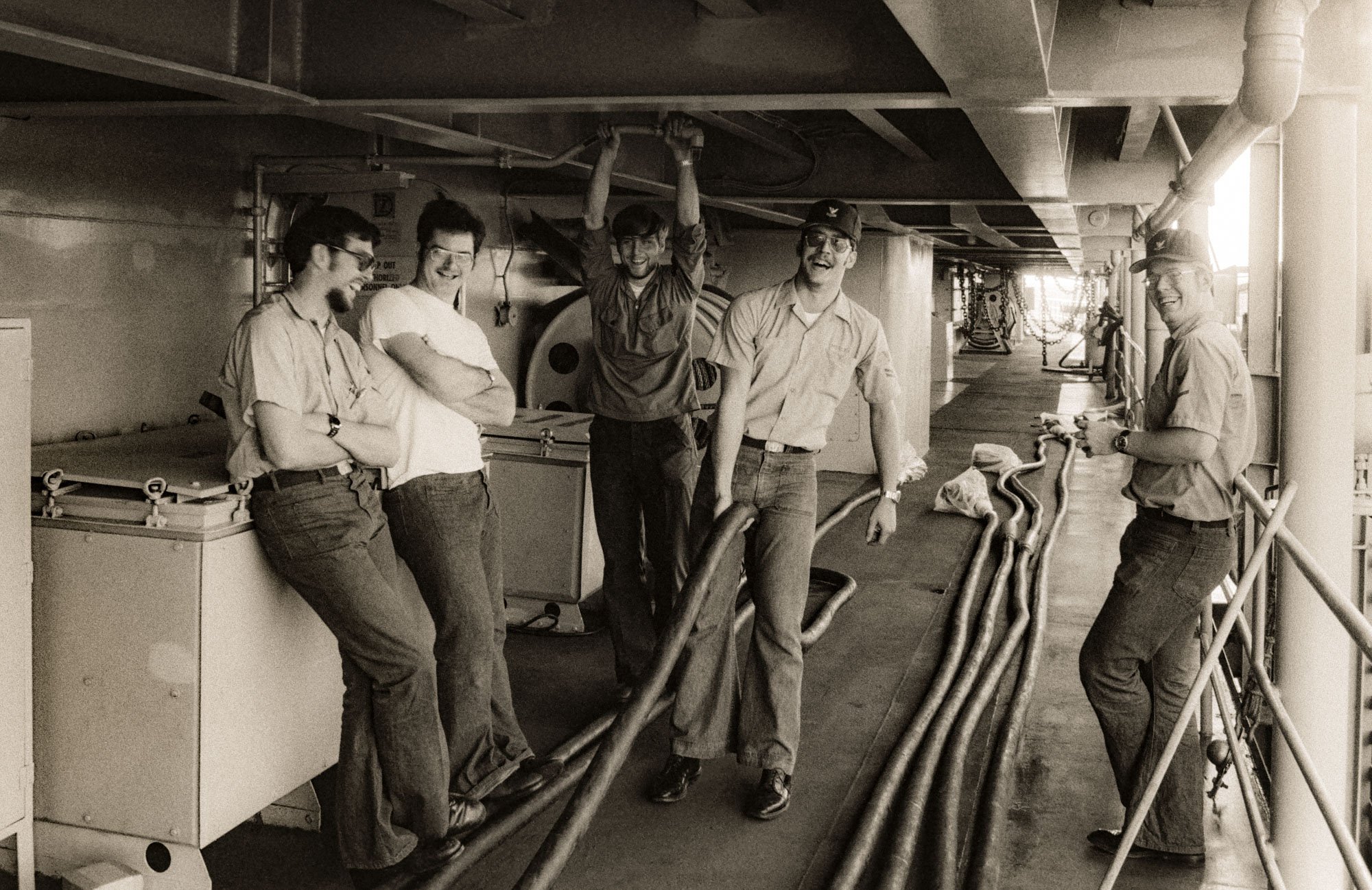
Charleston
(us112)
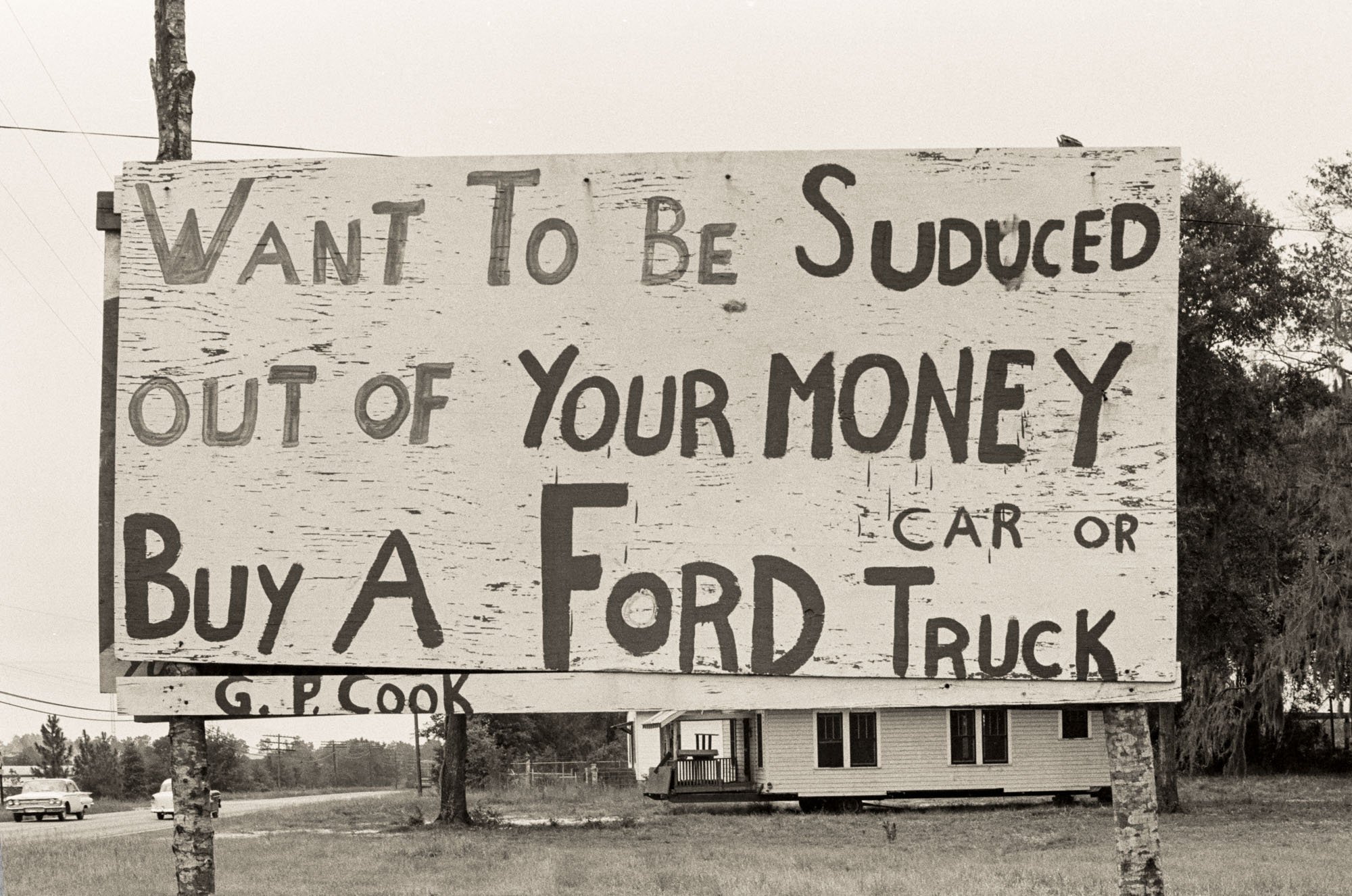
Wakulla County, Florida
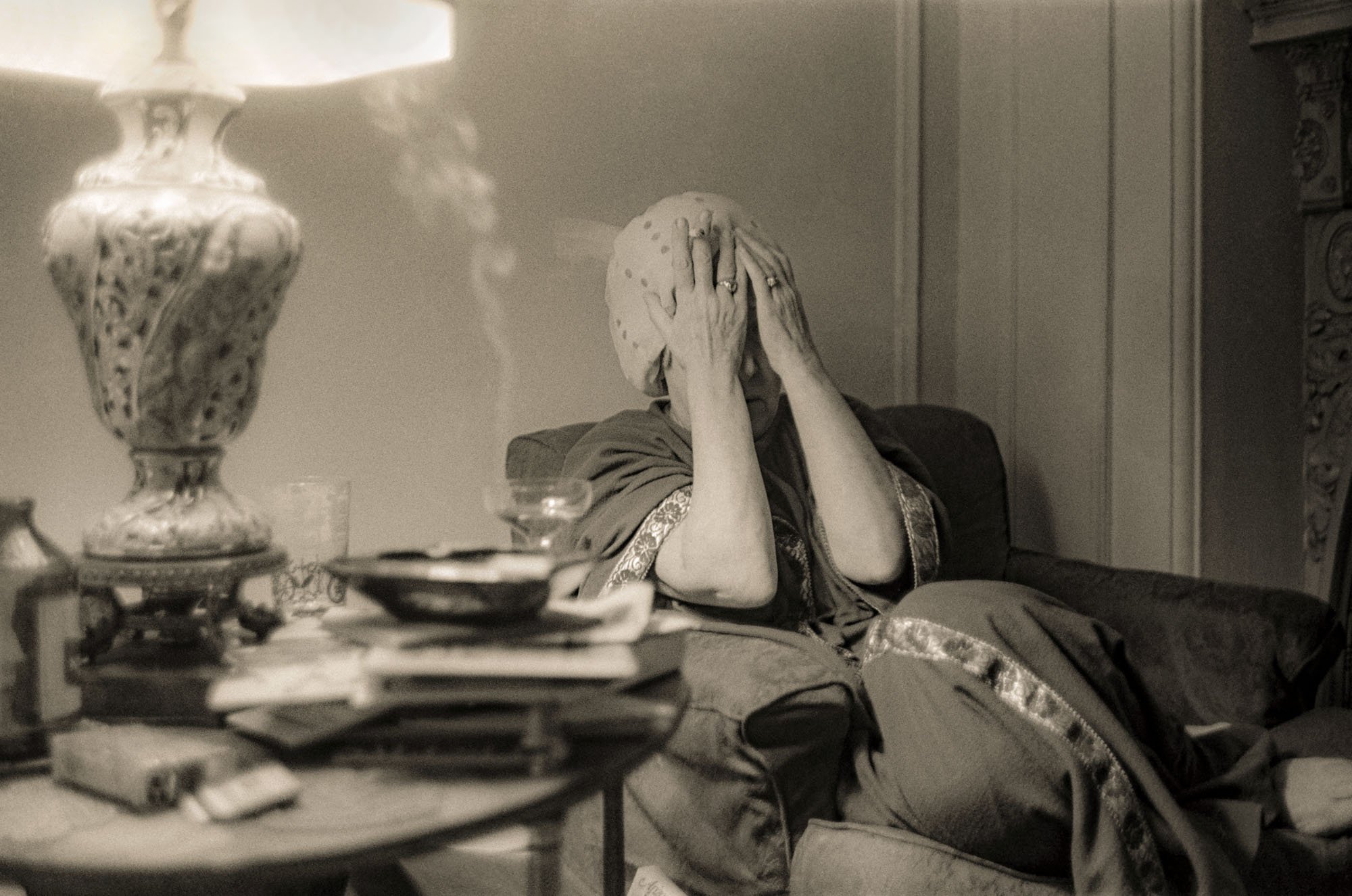
D.C.
(us133)
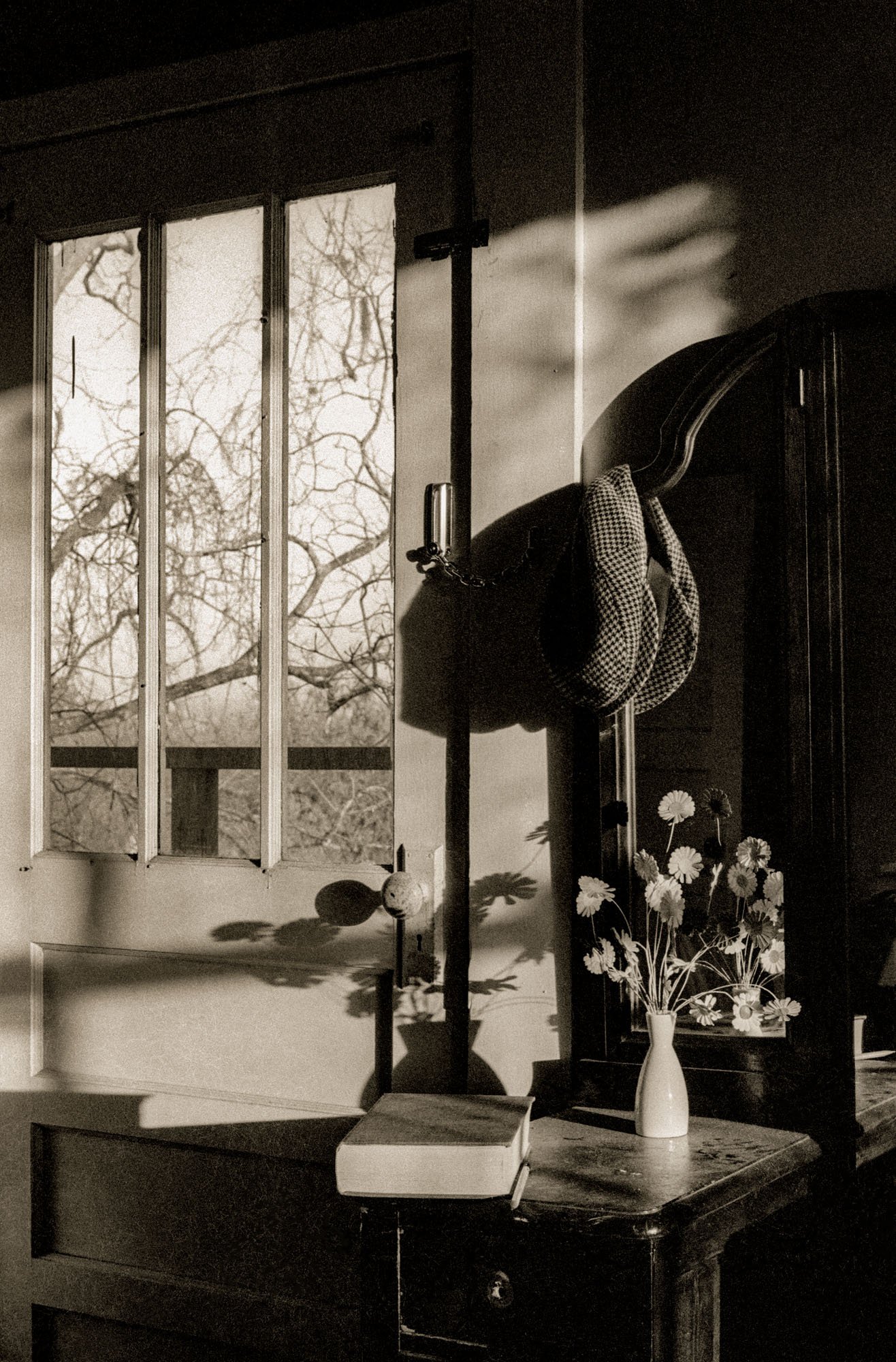
Tallahassee
(us151)
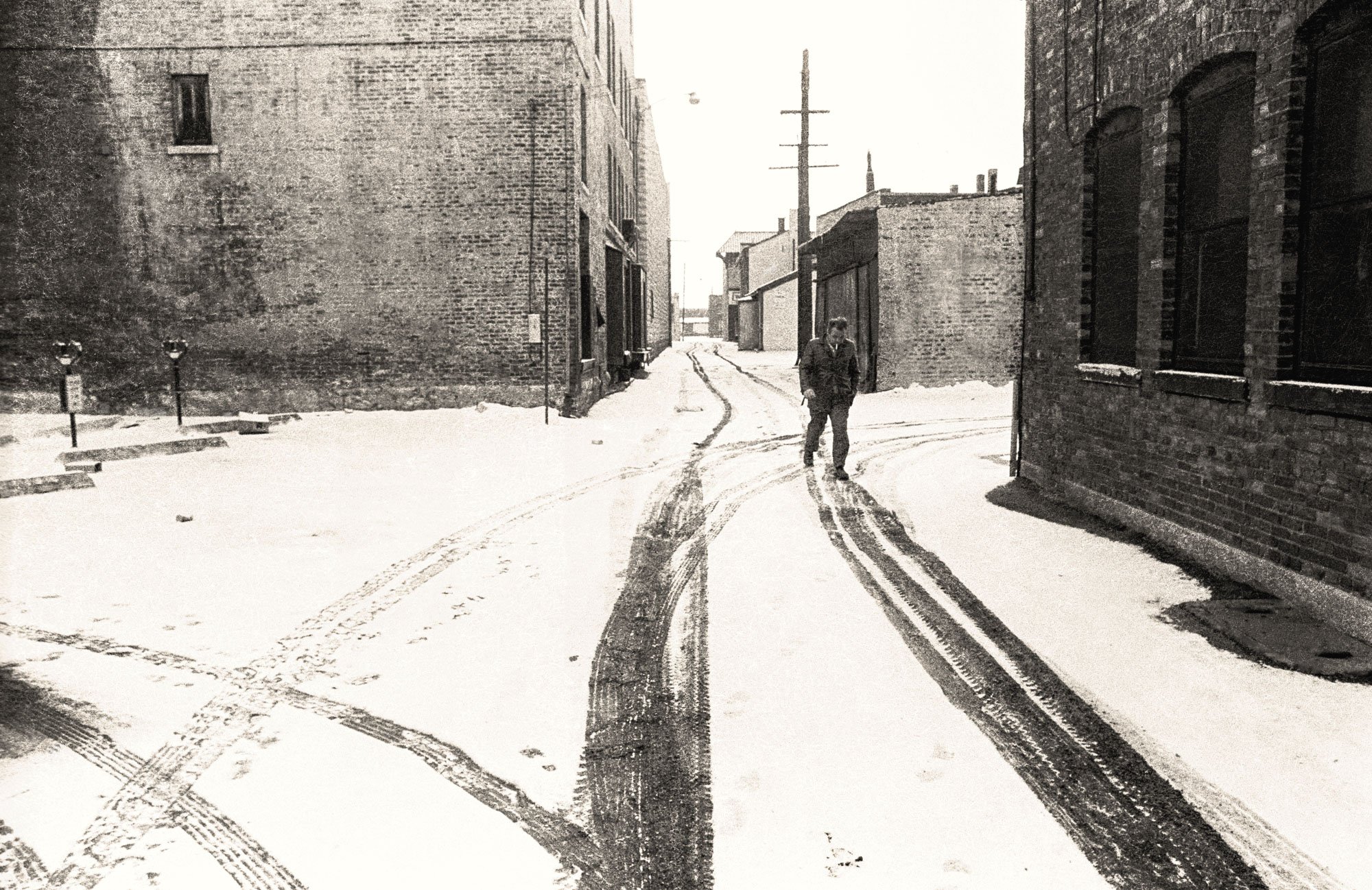
The graphics of winter in a city are nowhere stronger than an alley covered with snow. Joliet, IL.
(us153)
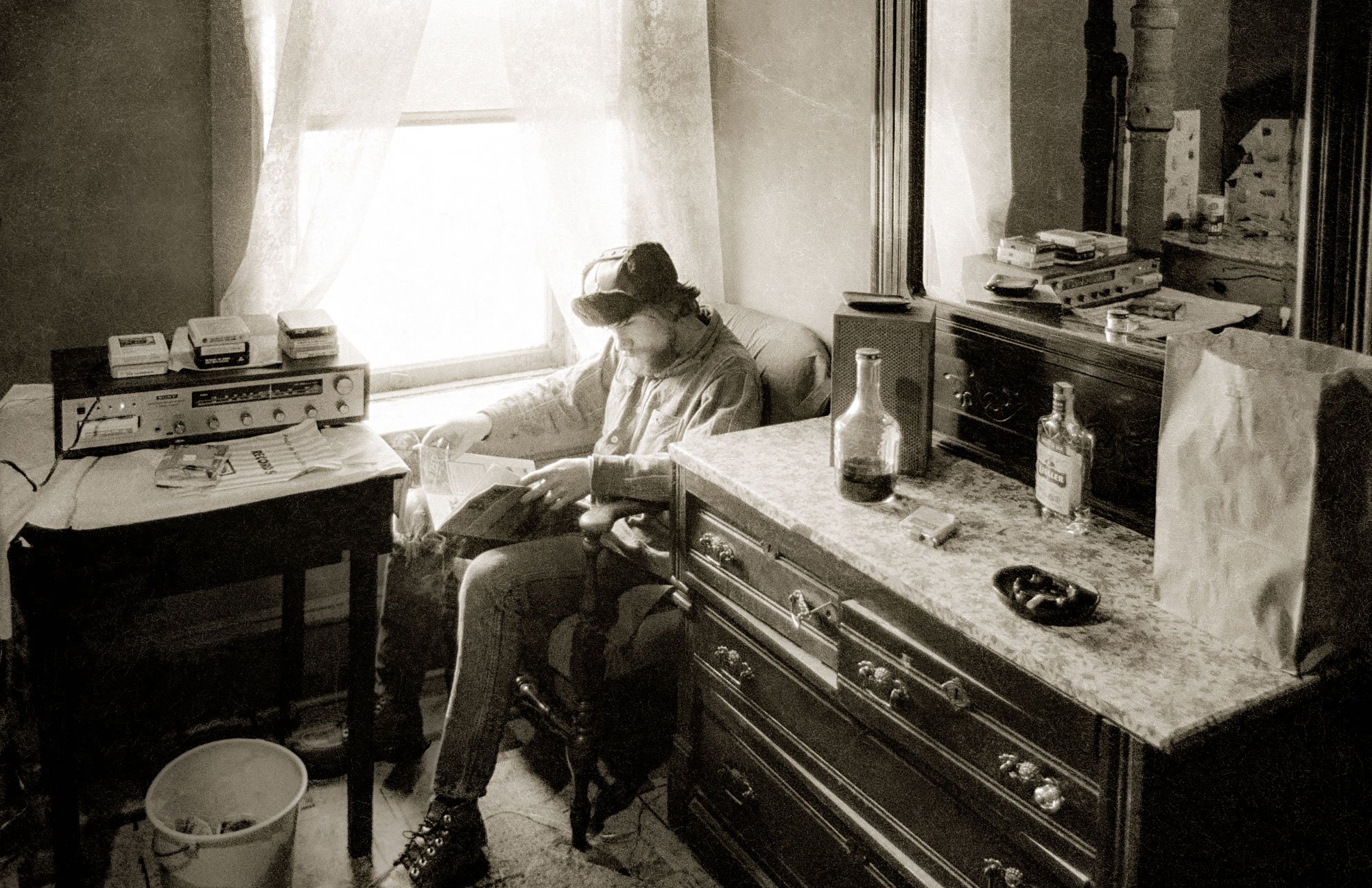
This man worked on the river in Illinois. His cherished possession was an 8-track player. He carried it around with him even on the tug boats.
(us156)
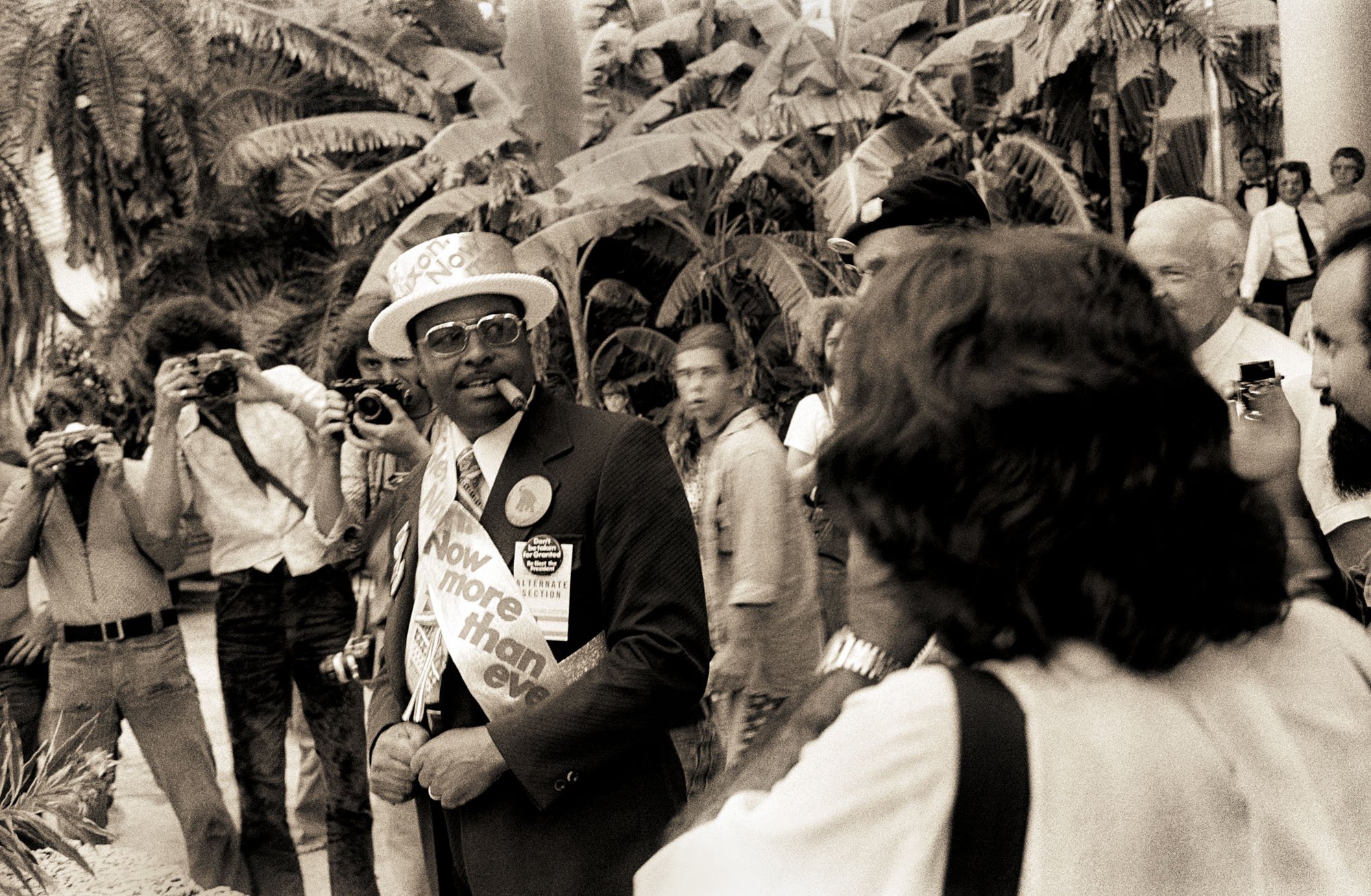
Spectator photographers like me are always drawn into scenes involving political or religious spectacles. They make for the best street theater.
(us162)
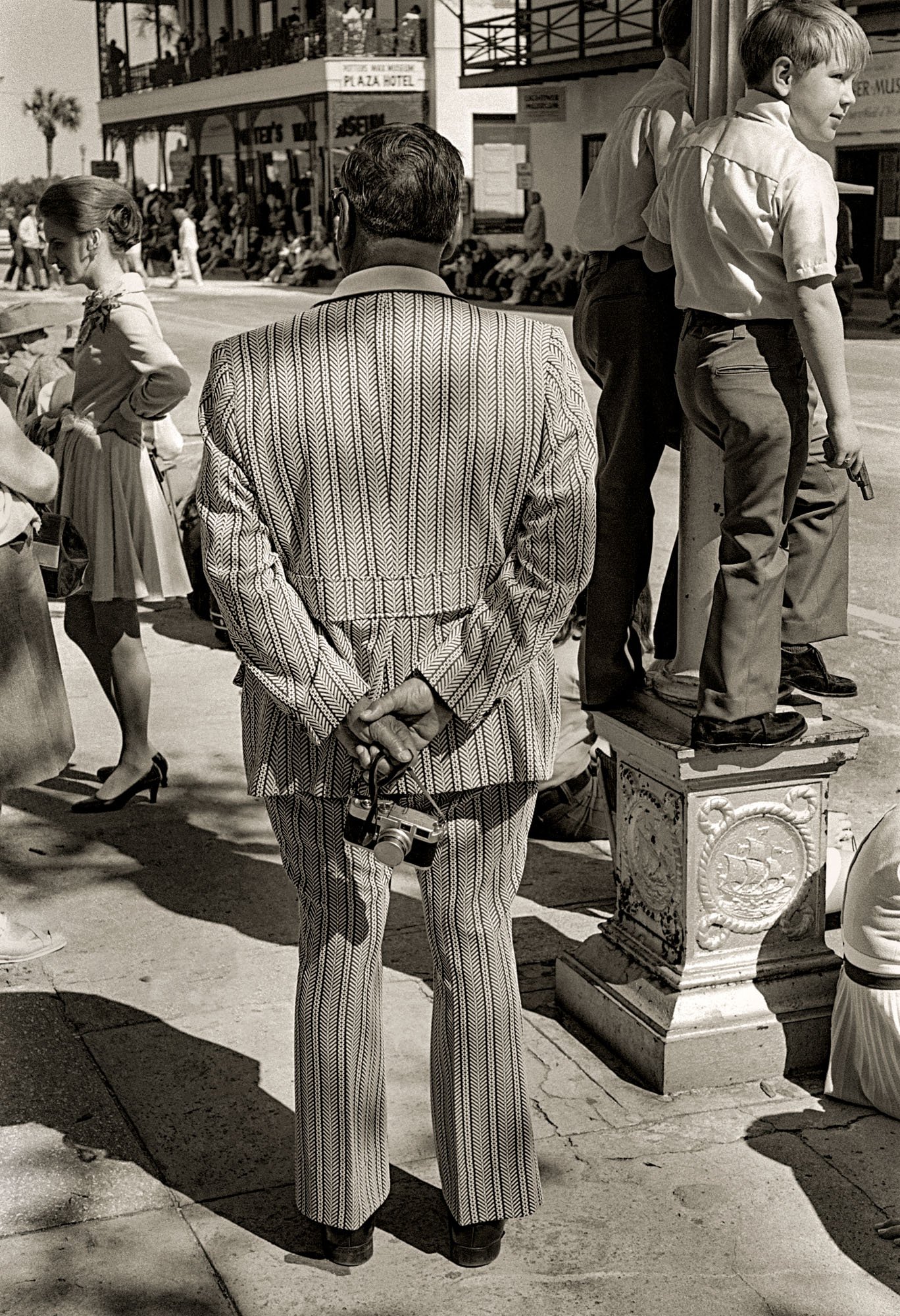
Every so often, you shoot a photo for the shapes or the values and later realize it has interesting details, e.g., the expensive camera and the gun in this photo. Someone else might have noticed the details and only later, the peoples’ shapes and gazes.
(us170)
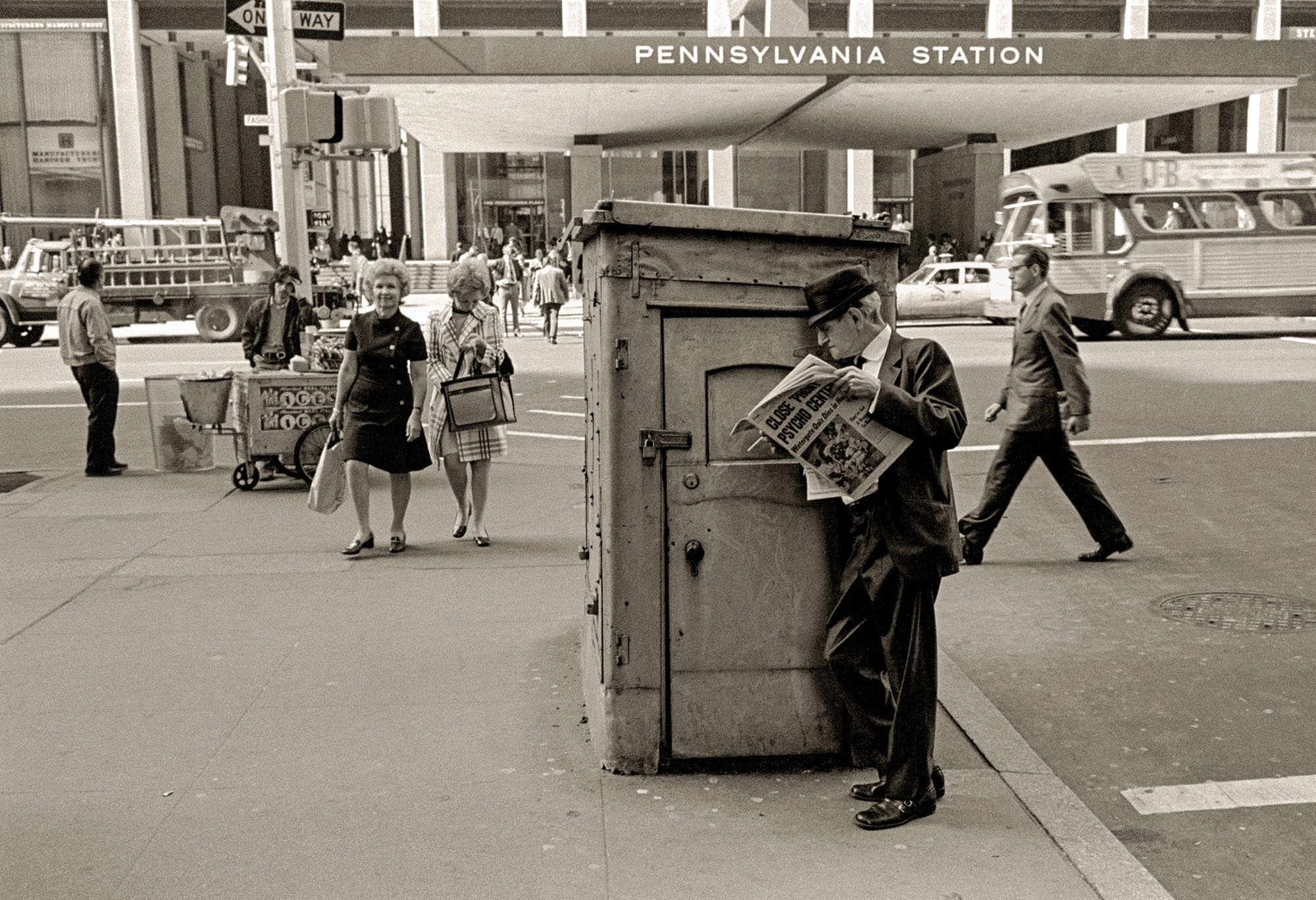
New York City
(us184)
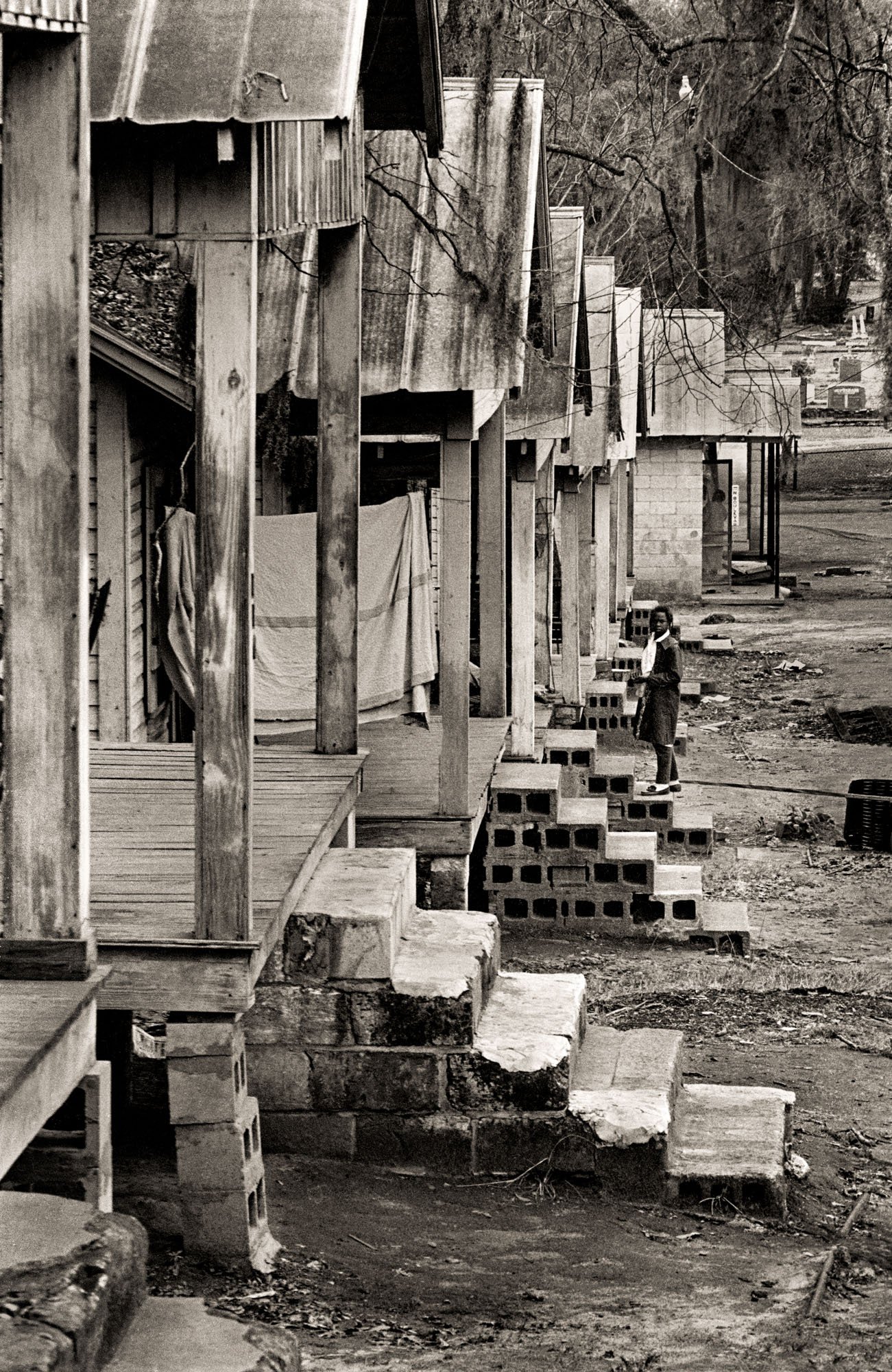
The economic imbalances in towns and cities in the US were manifestly obvious in the early ‘70s. A lot of the country had areas that looked like they must be in very underdeveloped countries.
(us200)
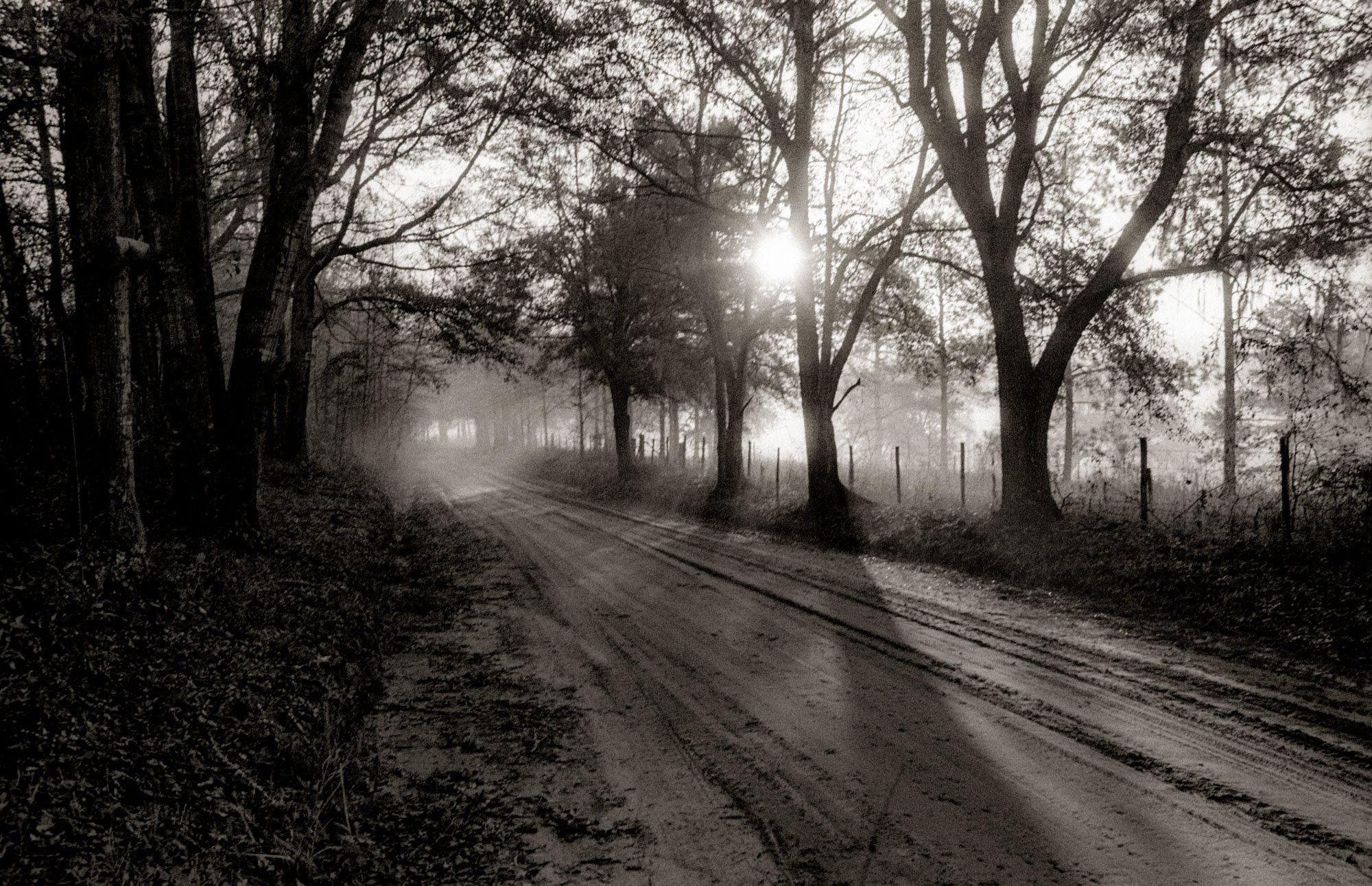
I tried to avoid taking “snapshots” in that period of my life. Unless taking snapshots is the way you approach your art, when you take a photograph as a snapshot you stop looking for the visual contrasts and ironies around you.
(us203)
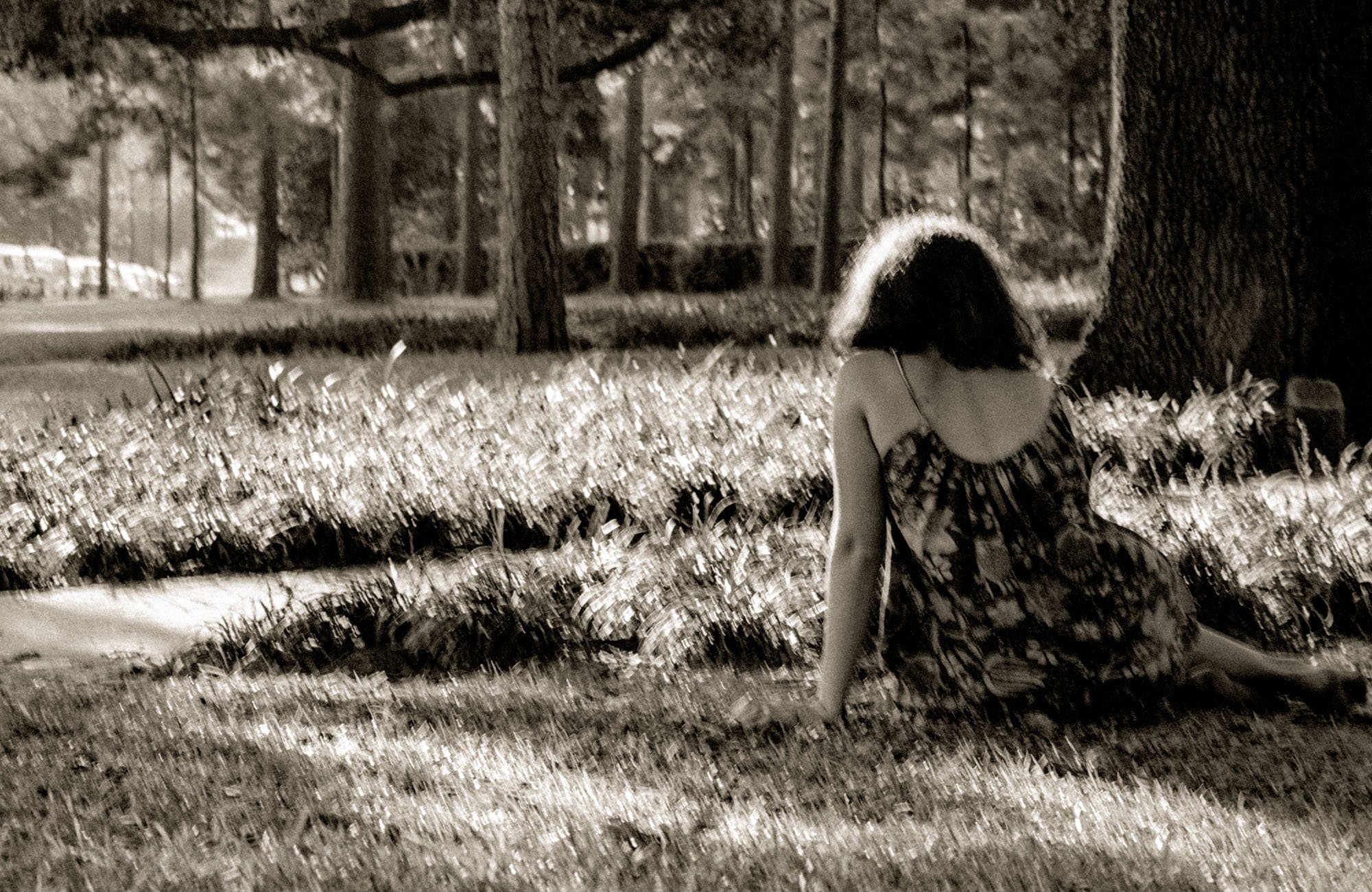
Tallahassee
(us206)
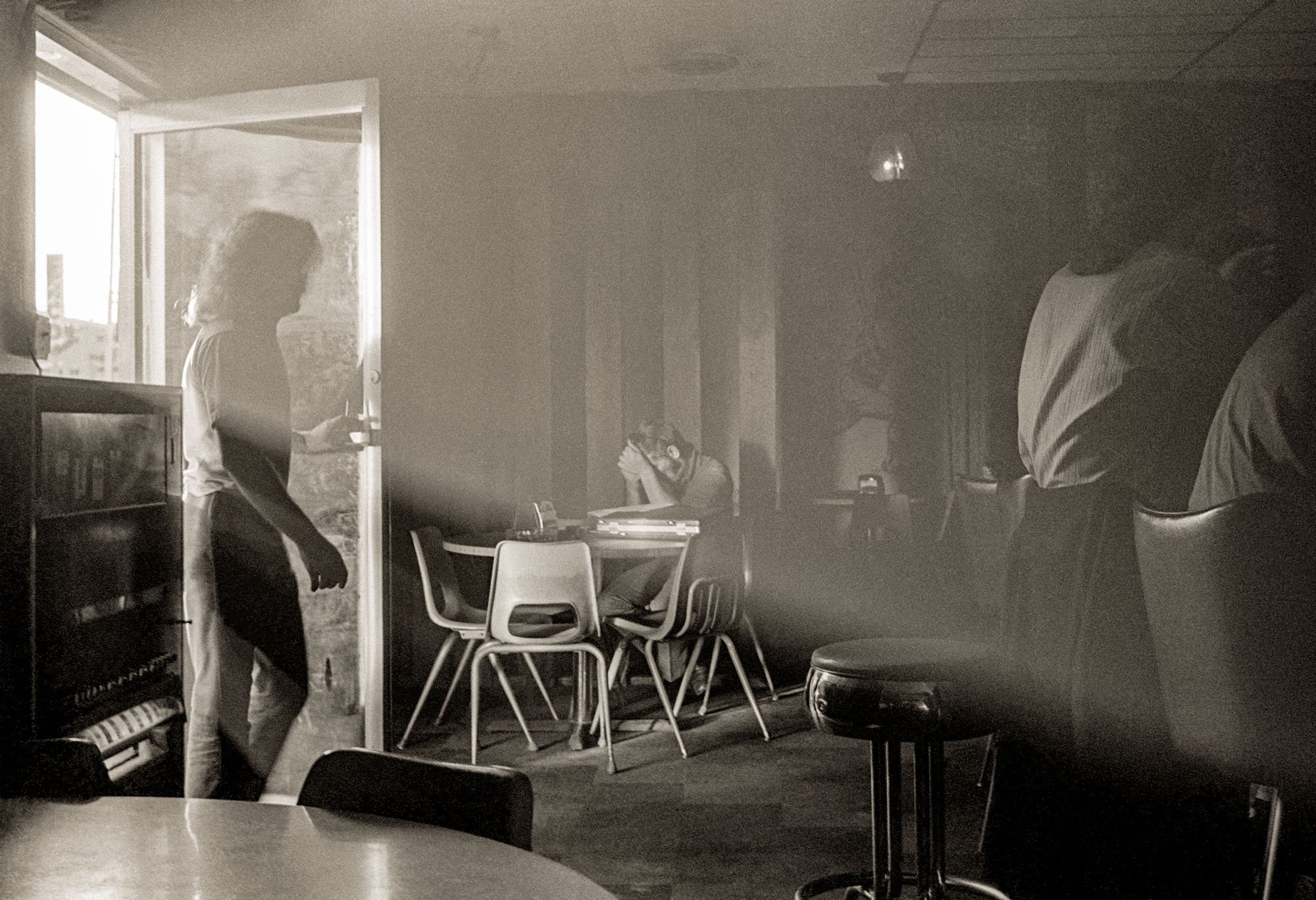
Afternoon projected light coming into a dark place reminded me of seeing an afternoon movie matinee. A city tavern in the afternoon can be a dark place. Quiet. People speak in undertones.
(us208)
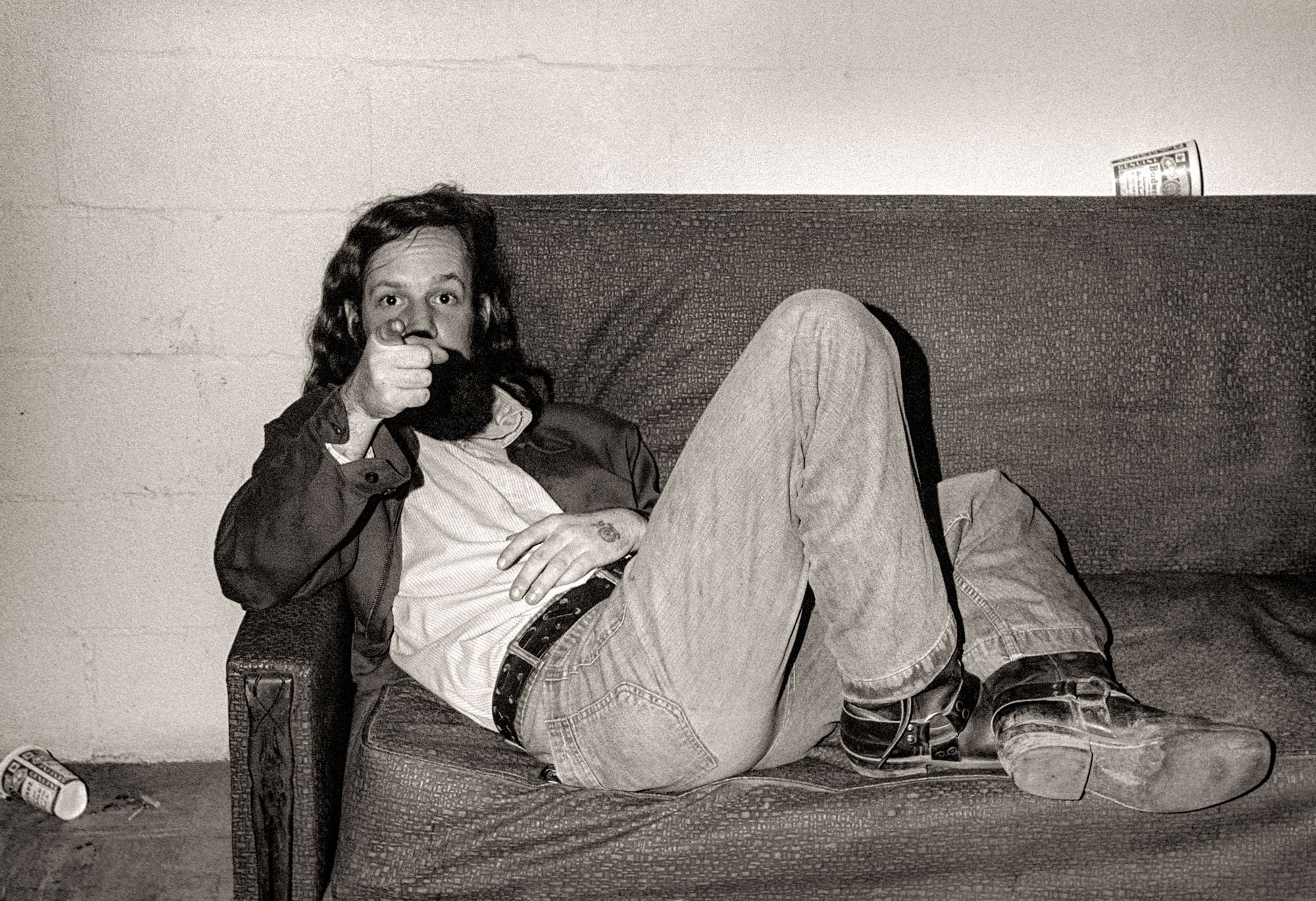
I photographed at night a lot in bars and on the street. Looking back I suppose I should have been more careful, but I wasn’t. The eyes drew me in.
(us210)
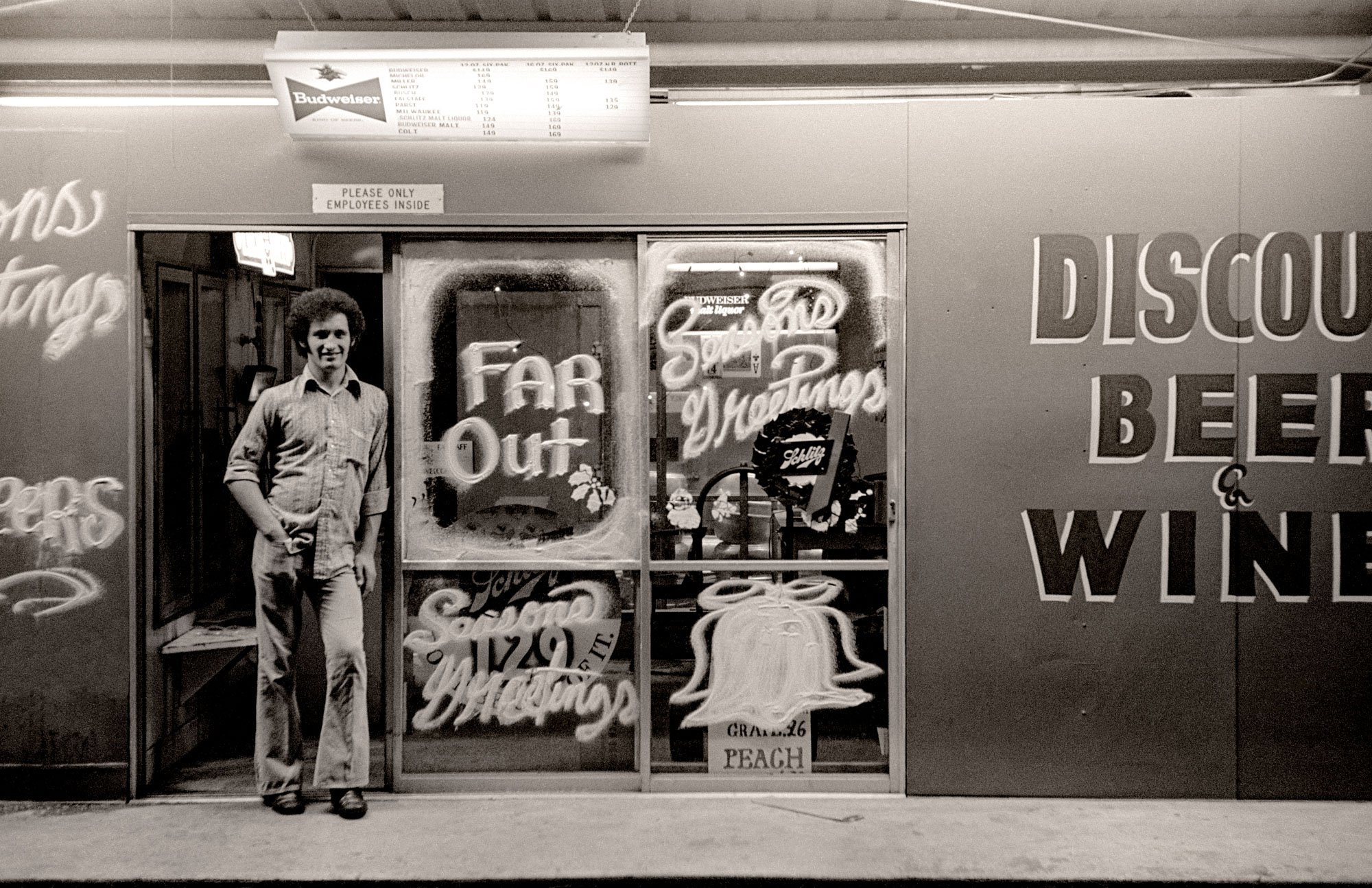
Tallahassee
(us215)
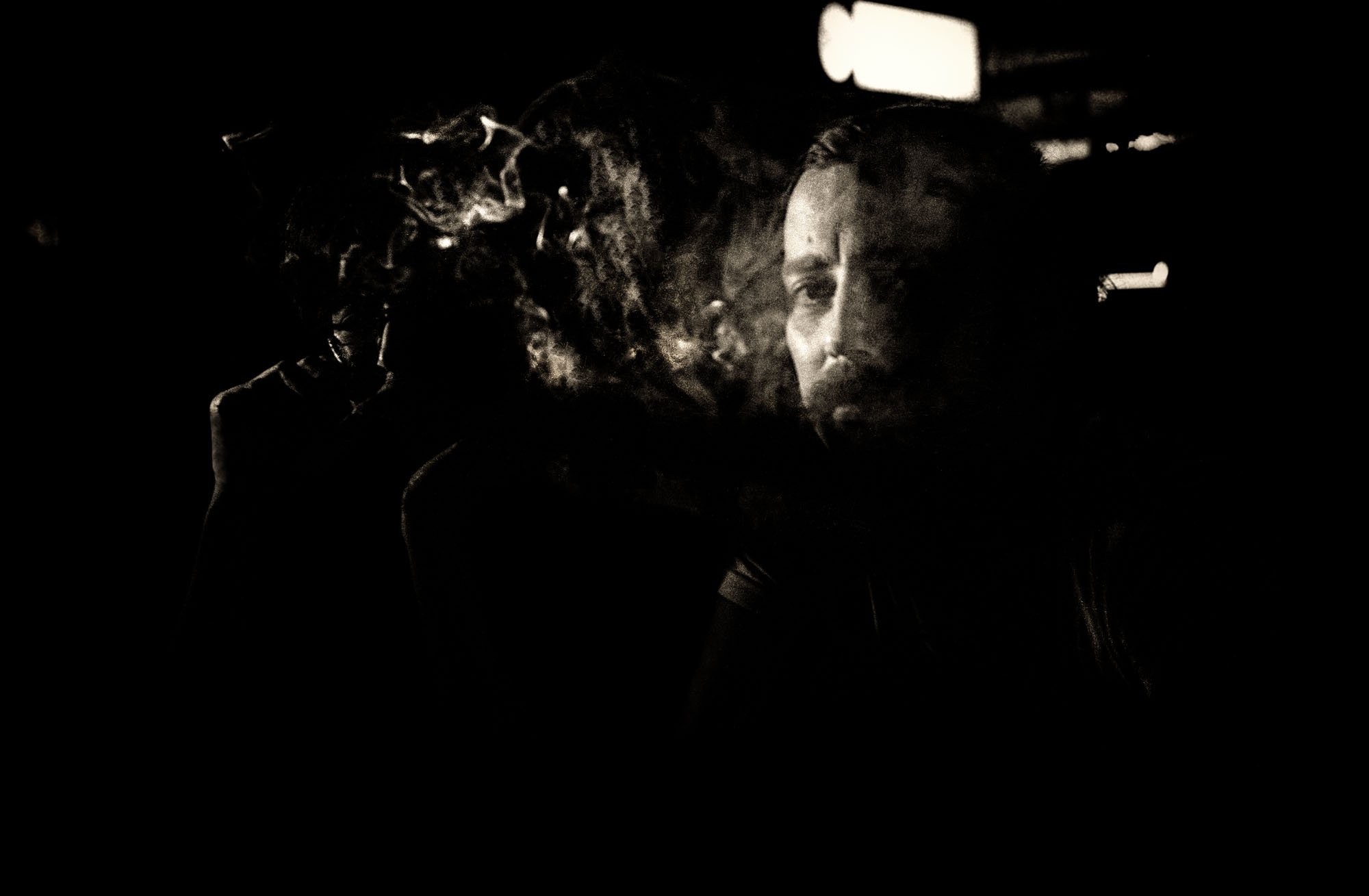
Tallahassee
(us251)
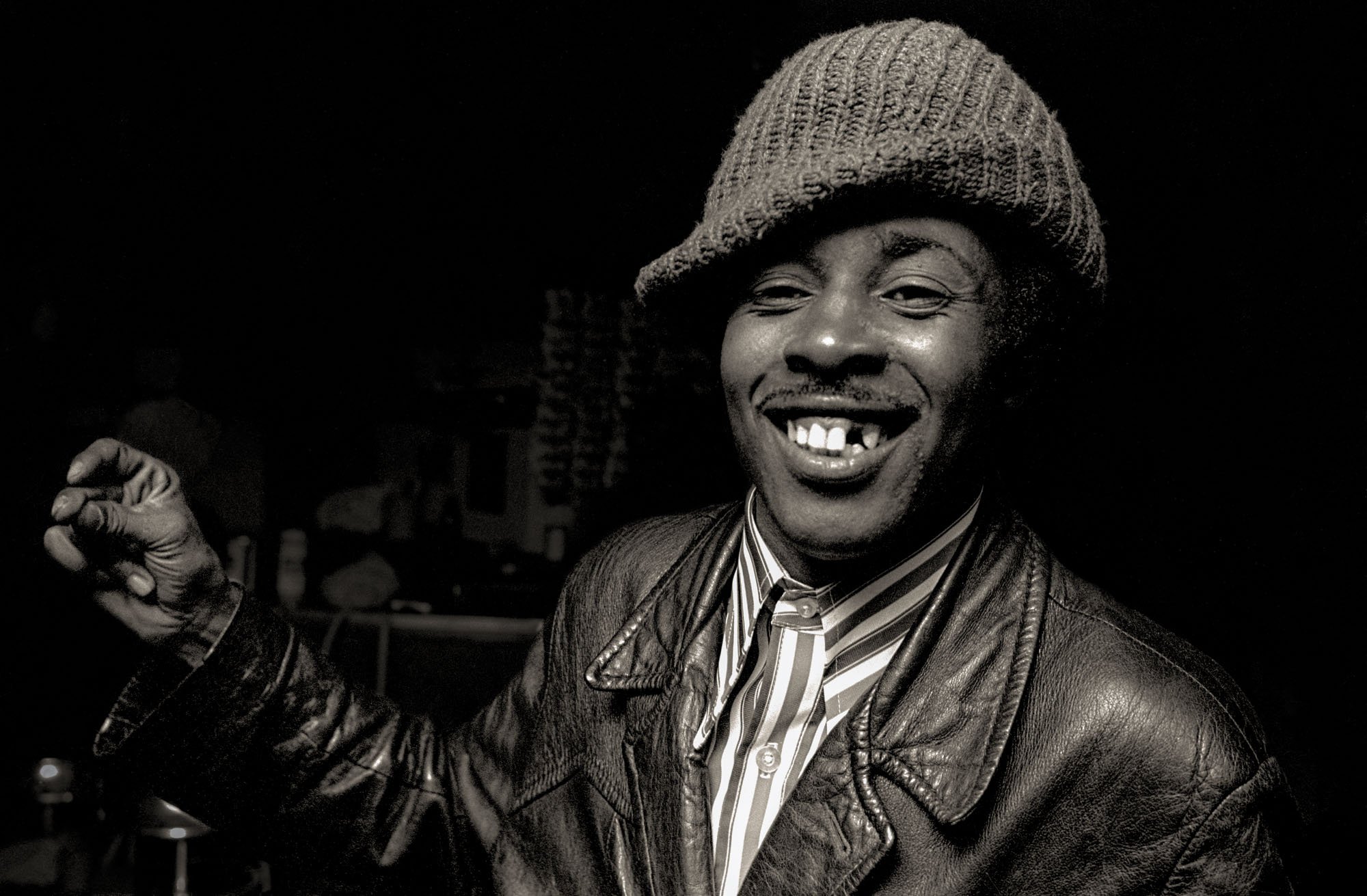
When the music is right, people move differently don’t they?
(us253)
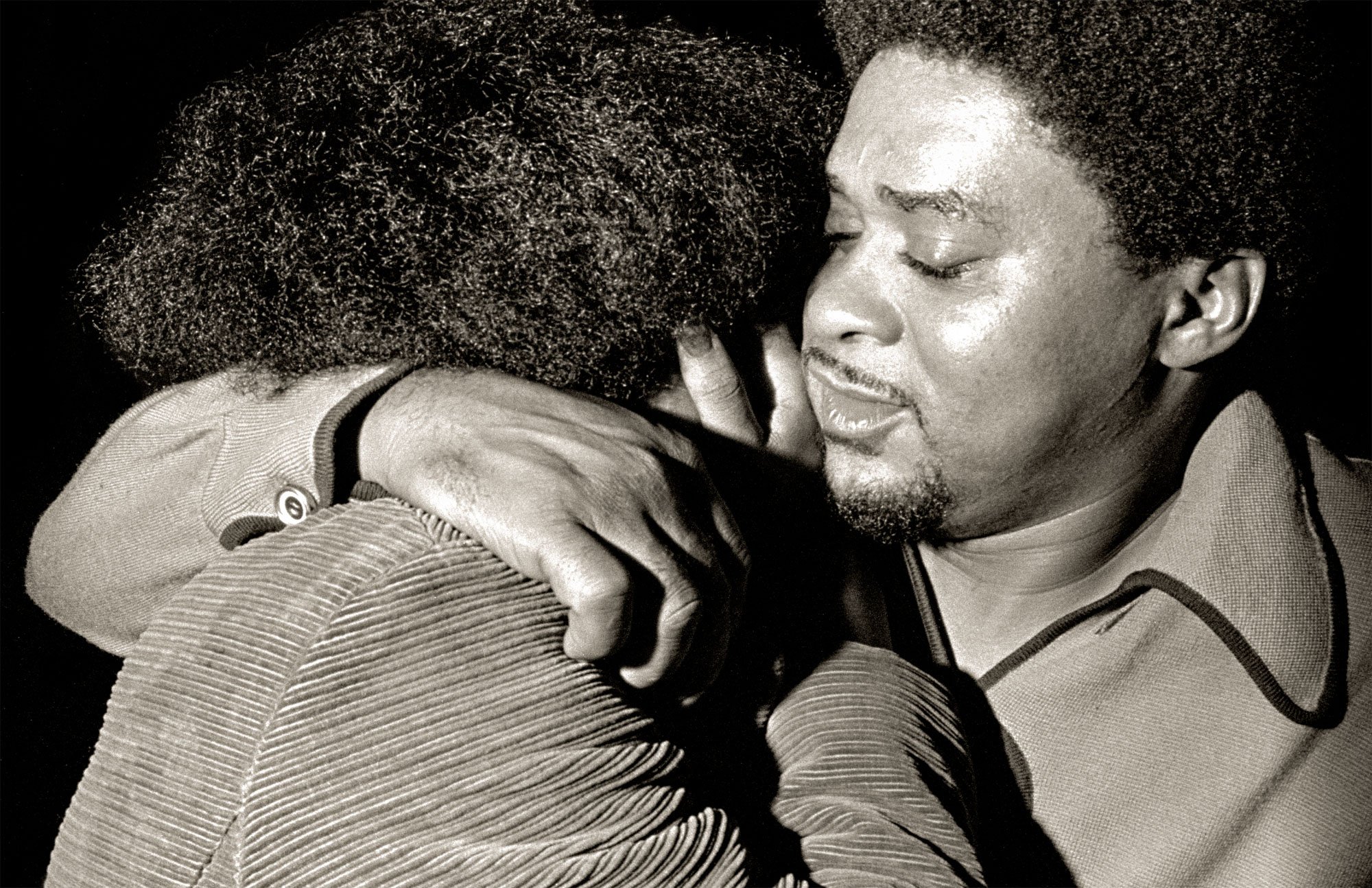
Textures are so different in flash photos. The light makes strong contrasts, shiny highlights, deep-black shadows.
(us255)

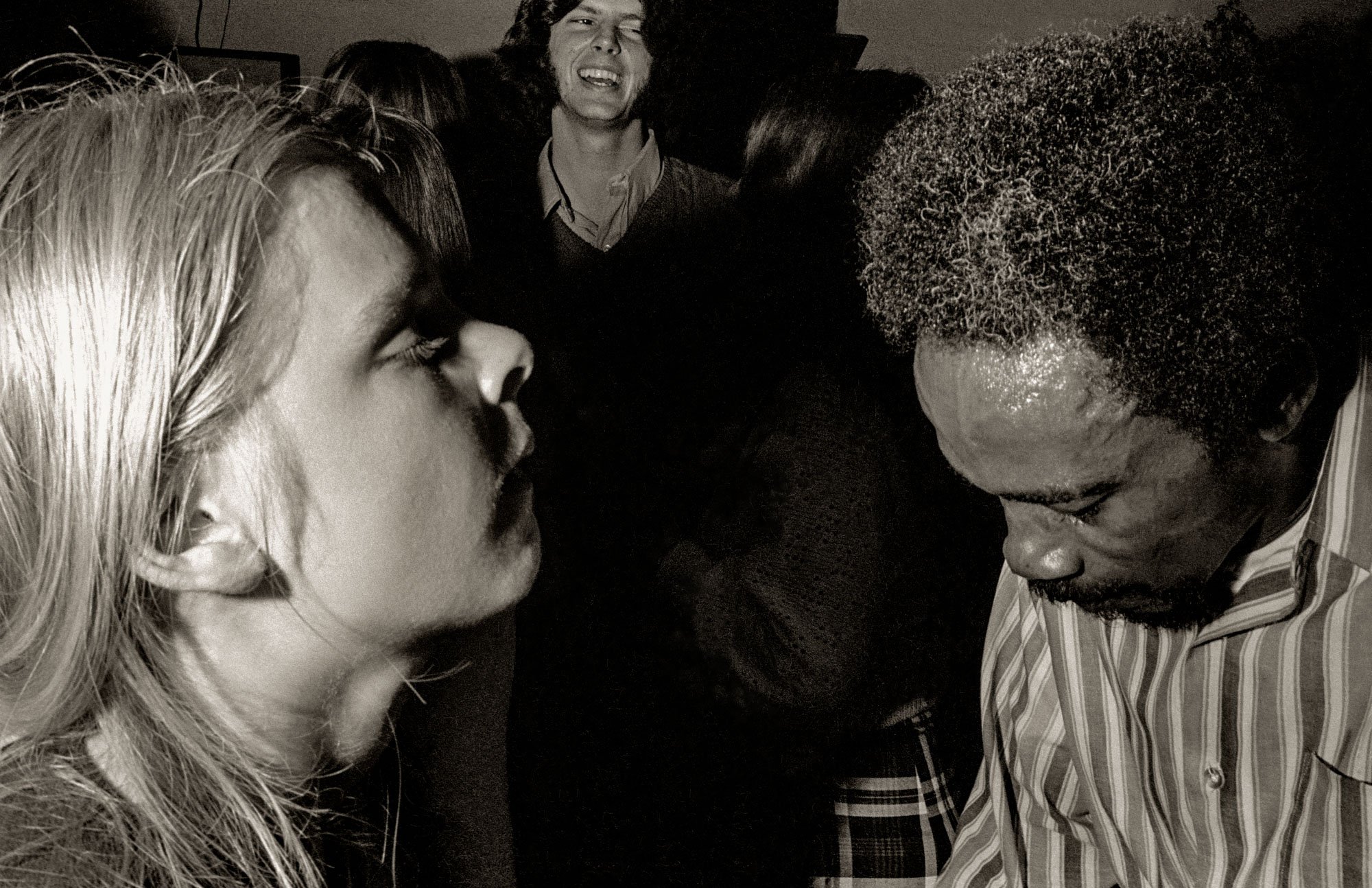
Working on these poorly-stored negatives is like restoring an old classic car. You take a scratched, fungus-ridden image down to its raw essence and rebuild it into something interesting that would have just rotted away.
(us256)
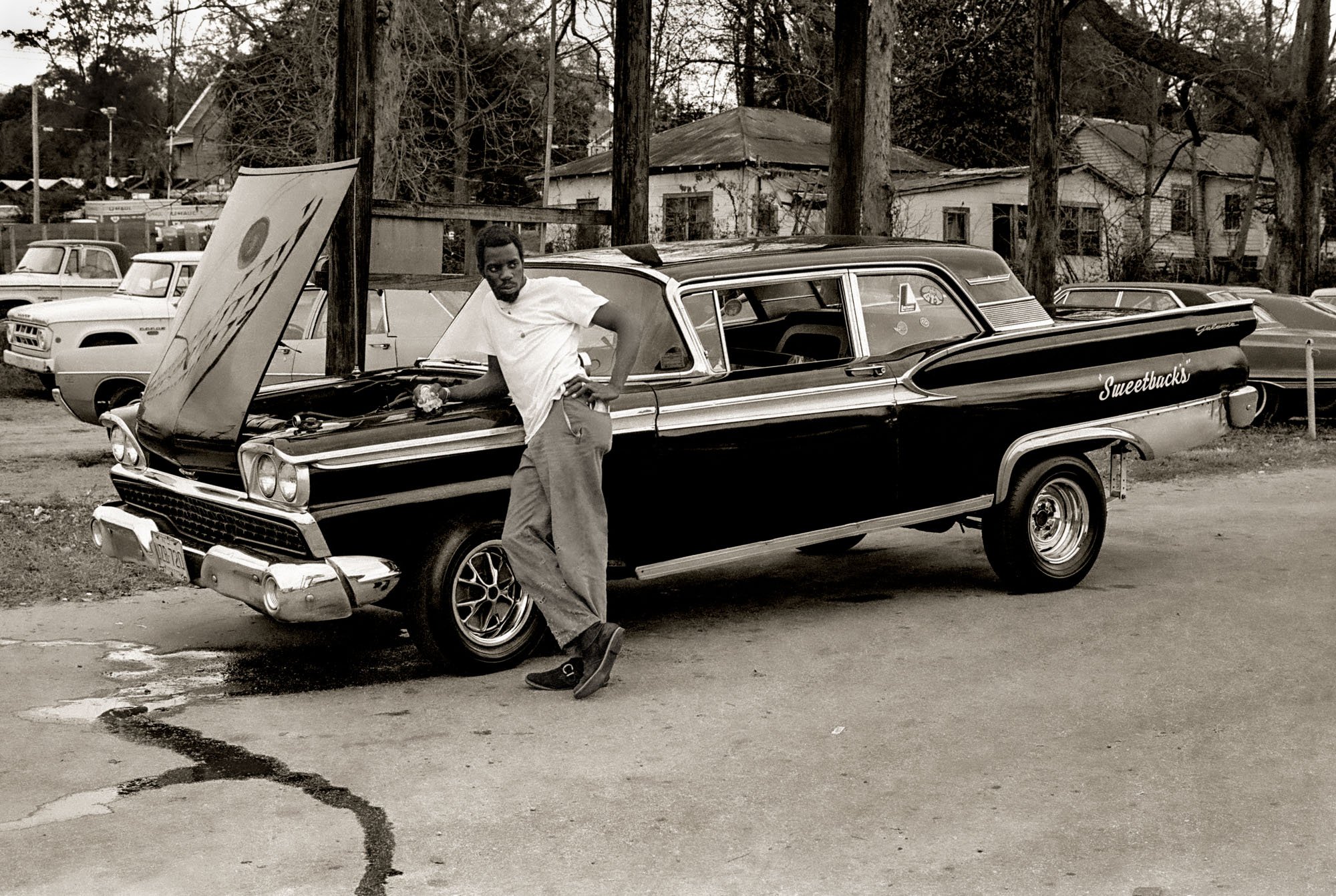
Wonderful old cars with decals like the one in this photo reminded me of plastic model cards we built as a child. The dependability of cars of that era was another story.
(us272)
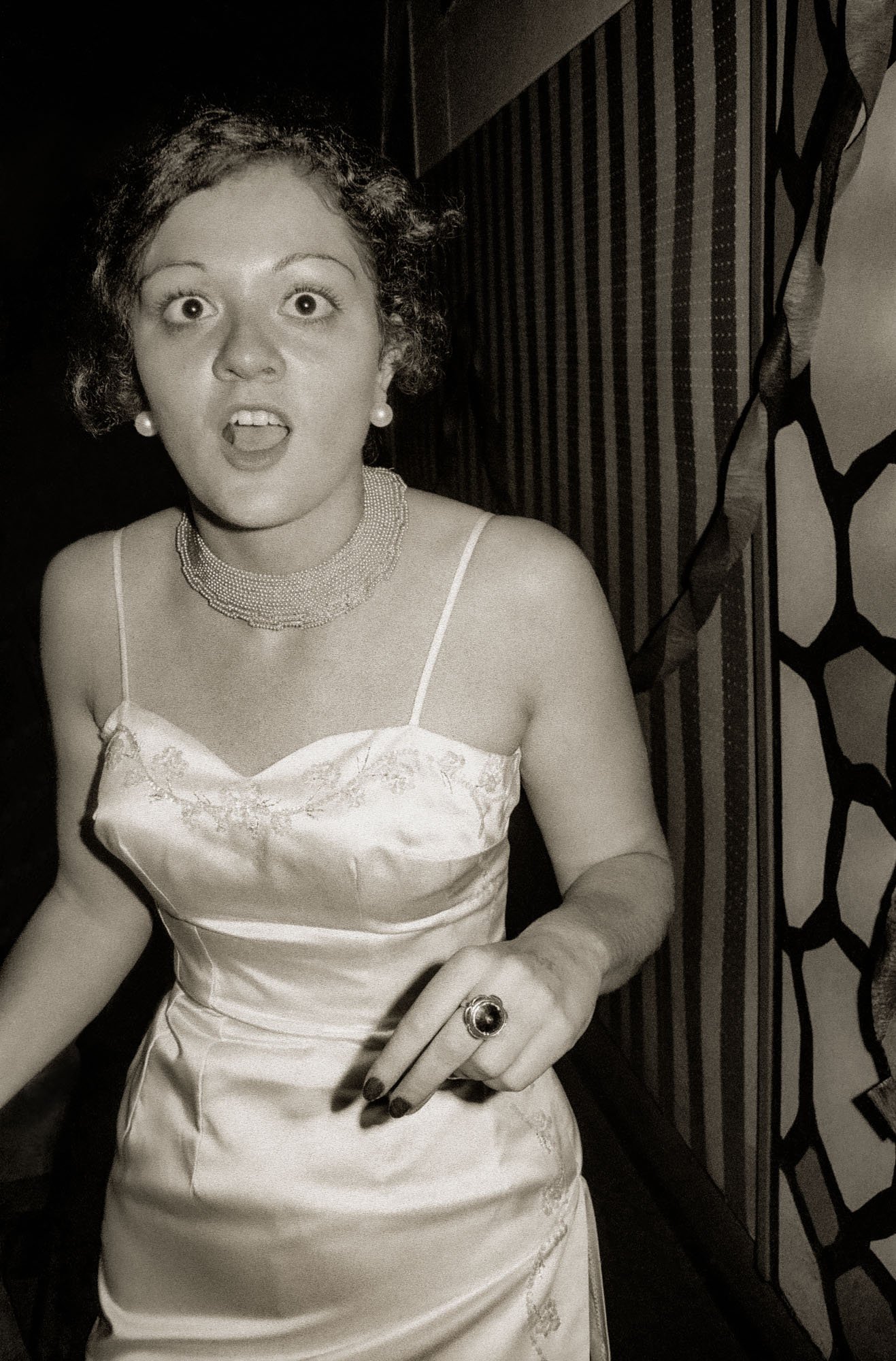
Tallahassee
(us310)

Everywhere around us are signs, shapes, and visual promotions that gorge our eyes so often we no longer notice them.
(us159)

(us291)
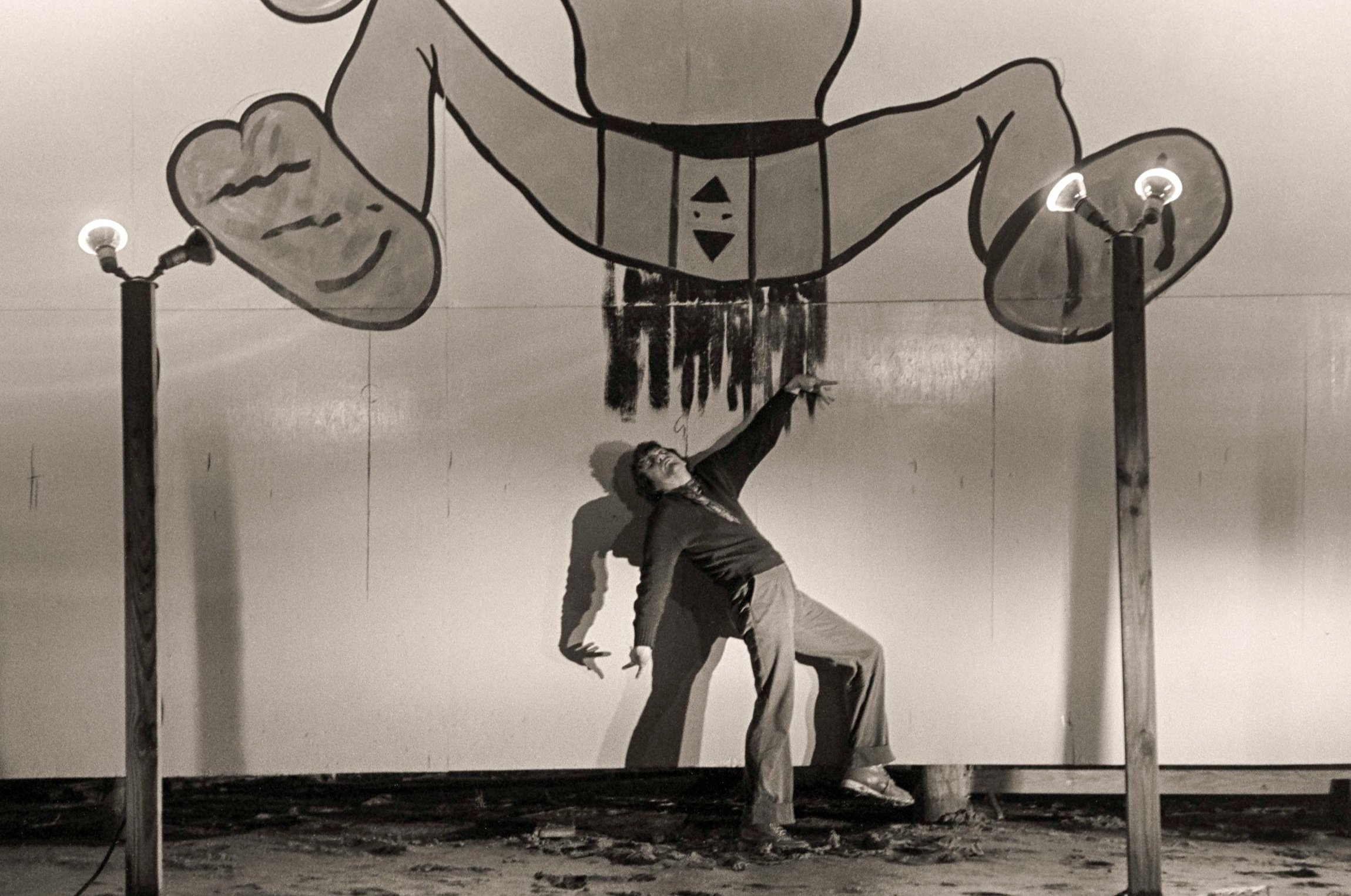
(us016)

(us104)

There were demonstrations at college campuses toward the end of the Vietnam War. Like this one, some were heated debates between university administrators and campus activists.
(us051)






















































Walking around, you have to be ready for serendipity to happen. As a photographer the “decisive moment” is so much joy when you get it right. Daytona Beach.
(us006)
You wonder what people see when they look at a photograph that you have looked at a lot. Looking at this boy you could see how the stripes of his jersey echo the structure of the wall. You could see details like the tear in the left arm of his jersey, the bike lock wire in his pocket, or his boy scout pants. You could notice how his right hand kind of disembodies at the end of a football. New York City.
(us001)
New Orleans
(us002)
Usually, I wouldn’t take a photo like this of a New Orleans man. There were things so dark. The image tells you everything and nothing. New Orleans.
(us004)
Atlanta
(us005)
Daytona Beach was great fun to visit during the week in the early ‘70s. Lots of everyday folks just drove up to the beach, pulled a beach chair out of the car trunk. and baked in the sun for days and days.
(us007)
Miami
(us010)
Tallahassee
(us012)
Store fronts, like this one in NYC, tell us a lot about any culture, about style, about prices, about what is of interest to certain segments of the people in that area.
(us013)
US Route 95
(us016)
What attracts a photographer walking around and looking for photos of the street? To me, it’s usually the design—the shapes, the form of things. In mid-range images, it’s what the hands and arms are doing as much as the face. D. C.
(us021)
I love street shots where words become either a design element or an incongruous coincidence. Sometimes images have both. Florida.
(us022)
D.C.
(us025)
I have always enjoyed looking at portraits of people on the street staring into the camera. When the eyes are powerful, the person has a great face and posture; when the designs of the clothes or the background supports it--it’s hard to just walk by and forget it. Richmond.
(us026)
This is one of my earliest photos with an ancient 35mm camera and darkroom outfit I was teaching myself to use. This was shot on very grainy high-speed police film in Dupont Circle in DC.
(us036)
Frequently, when you stop along the road to take a photo that others might not think is there, you don’t regret it. It’s the shape or the color or something. Maybe it’s a narrative of everyday life like this place in Charleston.
(us072)
New York City
(us082)
D.C.
(us087)
Many Cubans refugees in Miami in the early ‘70s were vocal critics of Castro. Marches and demonstrations were lively, graphic, and loud.
(us096)
Scenes along a road where someone is doing something that could be explained in several ways attract our attention. We think about that person and sometimes we jump to conclusions. Less often, we also look at the visual components of the scene. Florida.
(us099)
New York State
(us020)
Tallahassee
(us028)
D.C.
(us100)
Sometimes when I came upon a storefront with strong visual messaging, I’d like to plant myself in the right spot and wait for someone to walk along who seems oblivious to the message. Havana, Florida
(us103)
Young people poured into cities for anti-Vietnam marches in the early 1970s. They slept wherever they wound up. D.C.
(us107)
New York City
(us110)
Tallahassee
(us112)
Charleston
(us112)
Wakulla County, Florida
D.C.
(us133)
Tallahassee
(us151)
The graphics of winter in a city are nowhere stronger than an alley covered with snow. Joliet, IL.
(us153)
This man worked on the river in Illinois. His cherished possession was an 8-track player. He carried it around with him even on the tug boats.
(us156)
Spectator photographers like me are always drawn into scenes involving political or religious spectacles. They make for the best street theater.
(us162)
Every so often, you shoot a photo for the shapes or the values and later realize it has interesting details, e.g., the expensive camera and the gun in this photo. Someone else might have noticed the details and only later, the peoples’ shapes and gazes.
(us170)
New York City
(us184)
The economic imbalances in towns and cities in the US were manifestly obvious in the early ‘70s. A lot of the country had areas that looked like they must be in very underdeveloped countries.
(us200)
I tried to avoid taking “snapshots” in that period of my life. Unless taking snapshots is the way you approach your art, when you take a photograph as a snapshot you stop looking for the visual contrasts and ironies around you.
(us203)
Tallahassee
(us206)
Afternoon projected light coming into a dark place reminded me of seeing an afternoon movie matinee. A city tavern in the afternoon can be a dark place. Quiet. People speak in undertones.
(us208)
I photographed at night a lot in bars and on the street. Looking back I suppose I should have been more careful, but I wasn’t. The eyes drew me in.
(us210)
Tallahassee
(us215)
Tallahassee
(us251)
When the music is right, people move differently don’t they?
(us253)
Textures are so different in flash photos. The light makes strong contrasts, shiny highlights, deep-black shadows.
(us255)
Working on these poorly-stored negatives is like restoring an old classic car. You take a scratched, fungus-ridden image down to its raw essence and rebuild it into something interesting that would have just rotted away.
(us256)
Wonderful old cars with decals like the one in this photo reminded me of plastic model cards we built as a child. The dependability of cars of that era was another story.
(us272)
Tallahassee
(us310)
Everywhere around us are signs, shapes, and visual promotions that gorge our eyes so often we no longer notice them.
(us159)
(us291)
(us016)
(us104)
There were demonstrations at college campuses toward the end of the Vietnam War. Like this one, some were heated debates between university administrators and campus activists.
(us051)